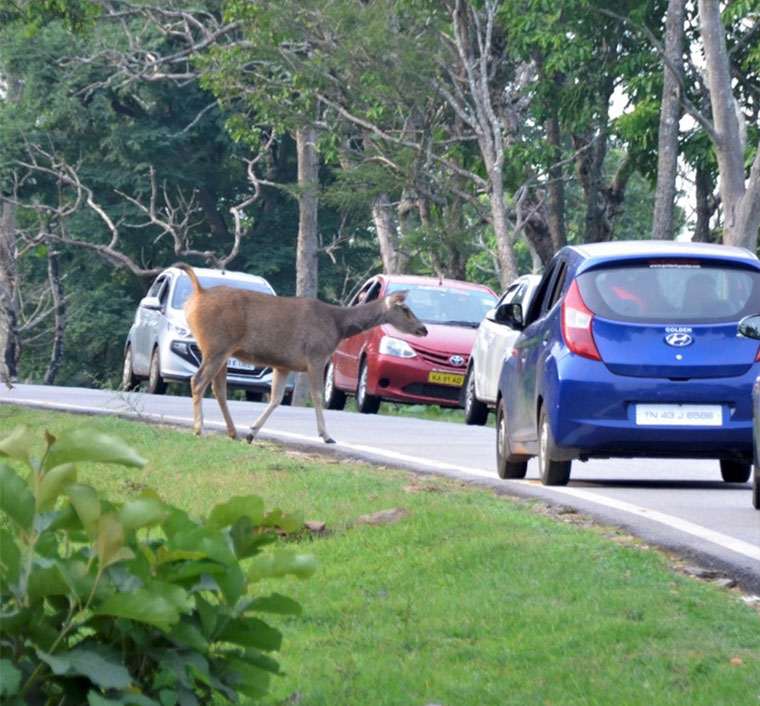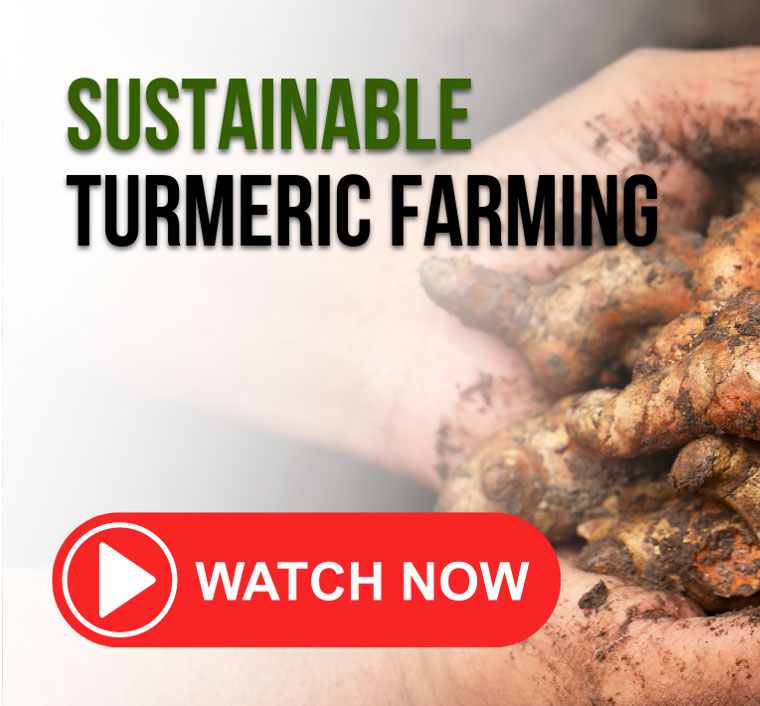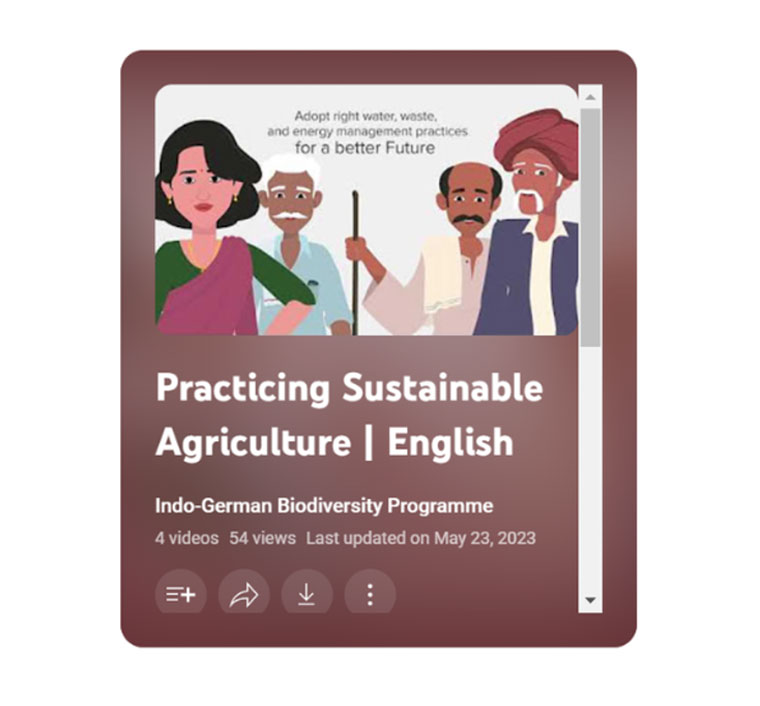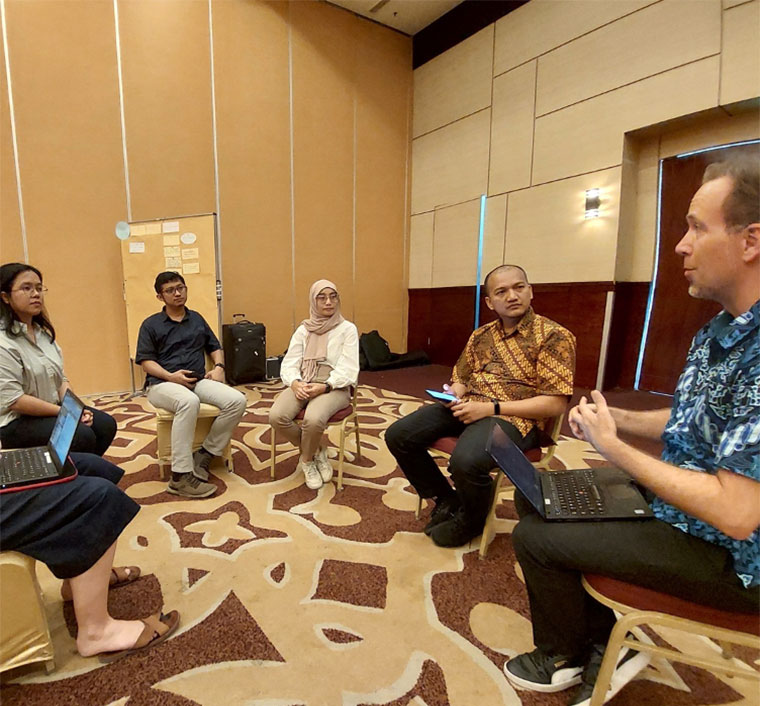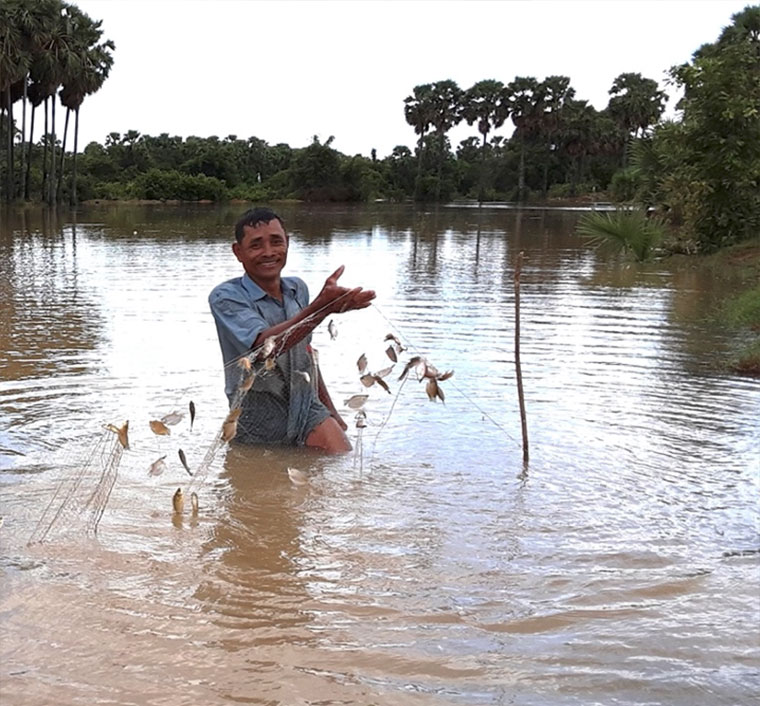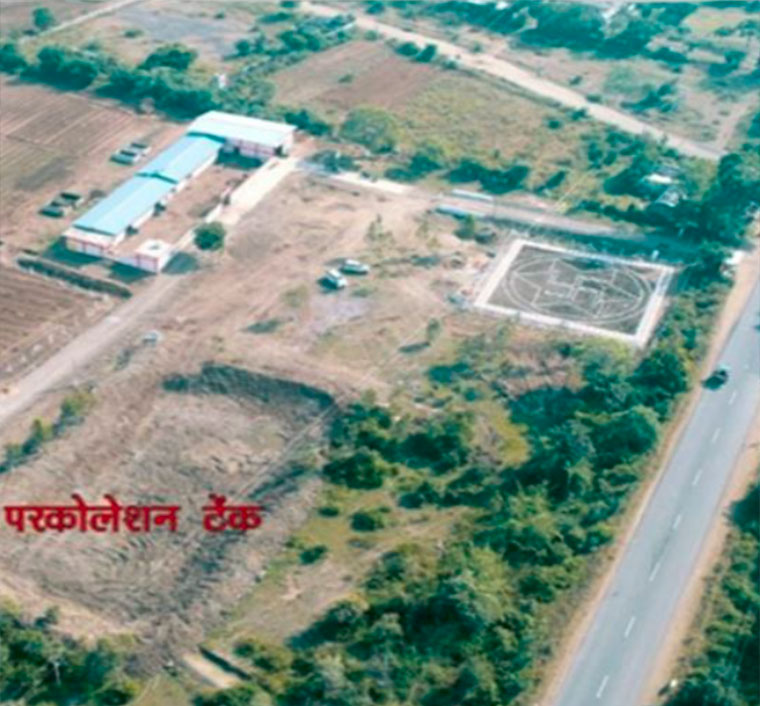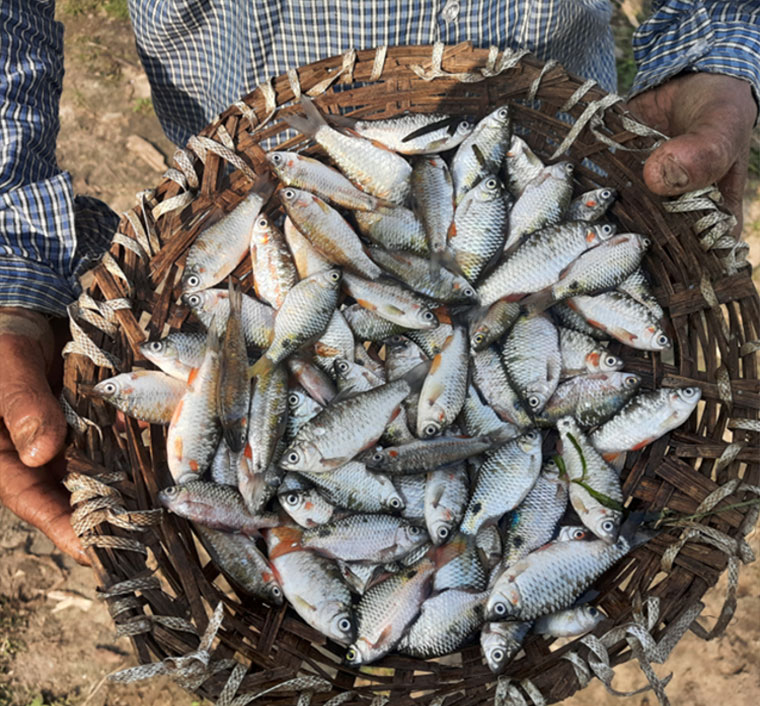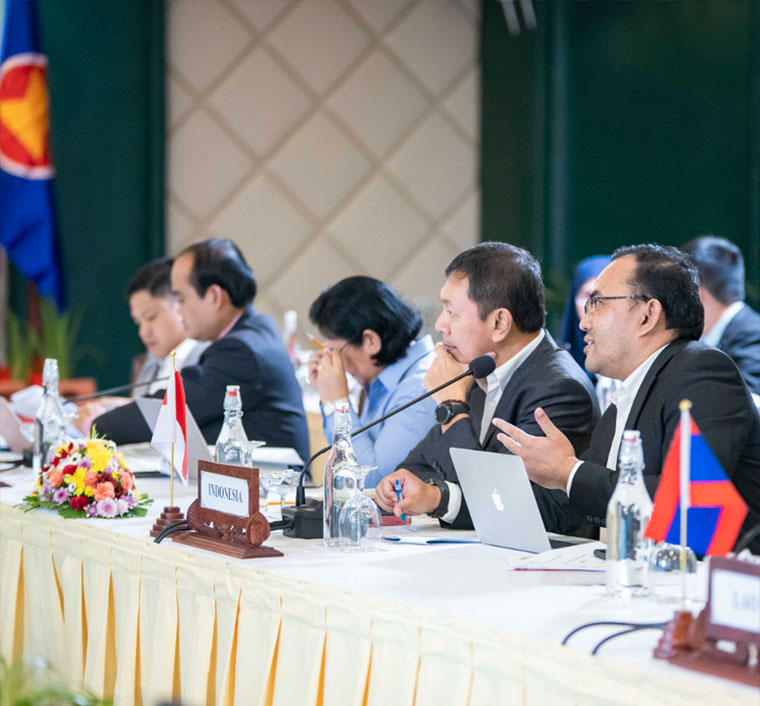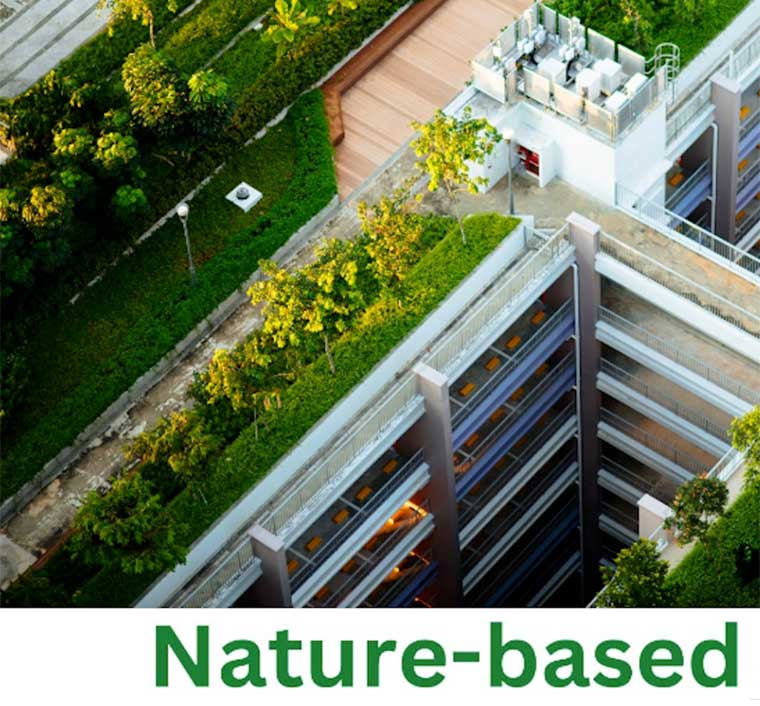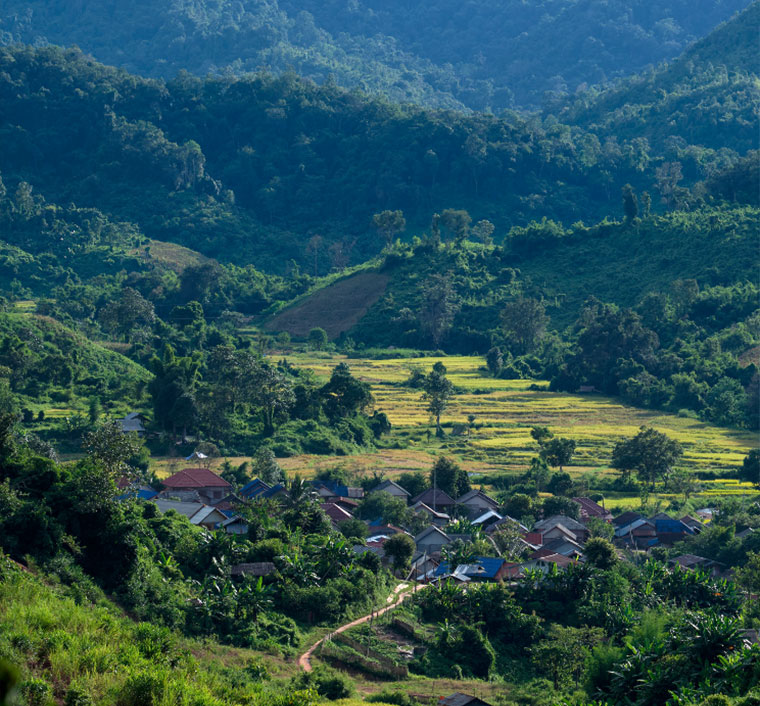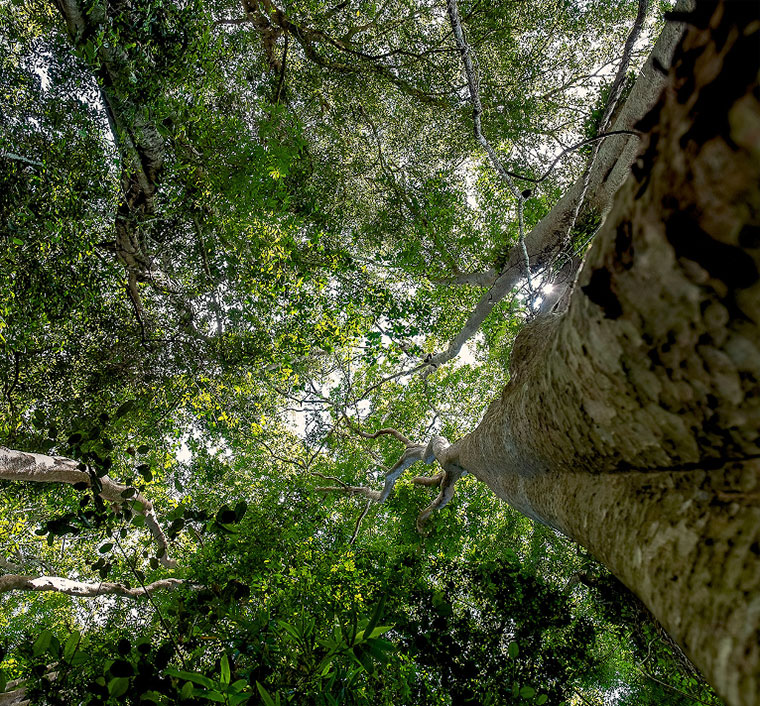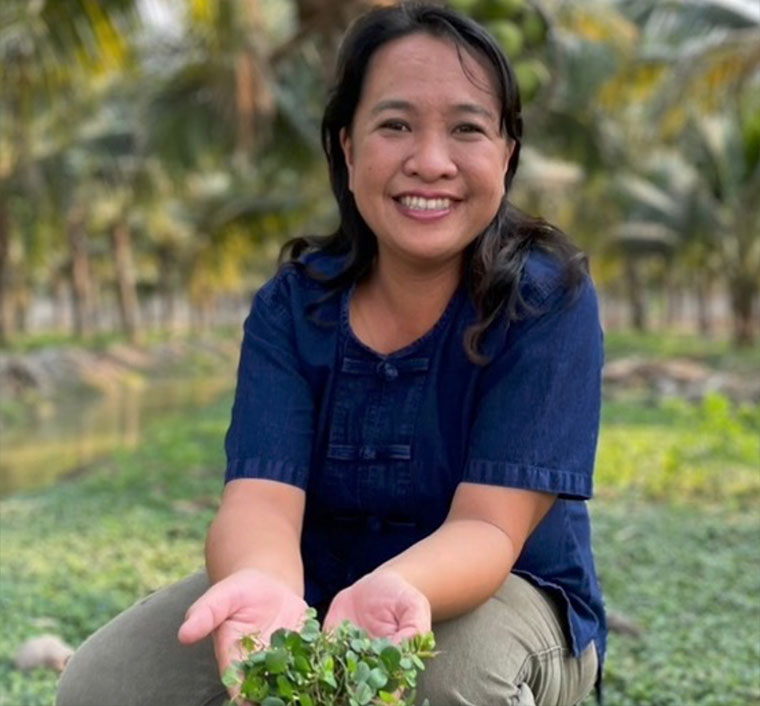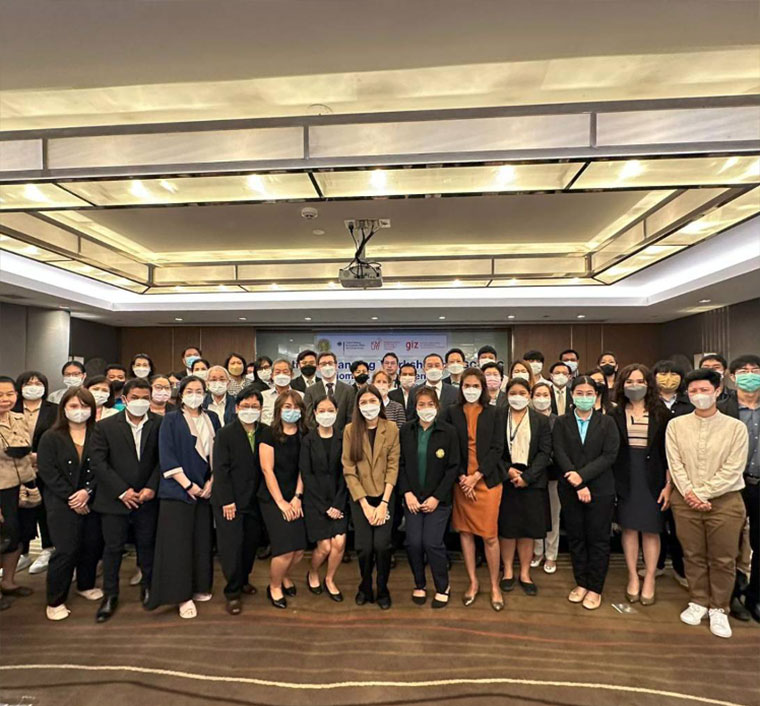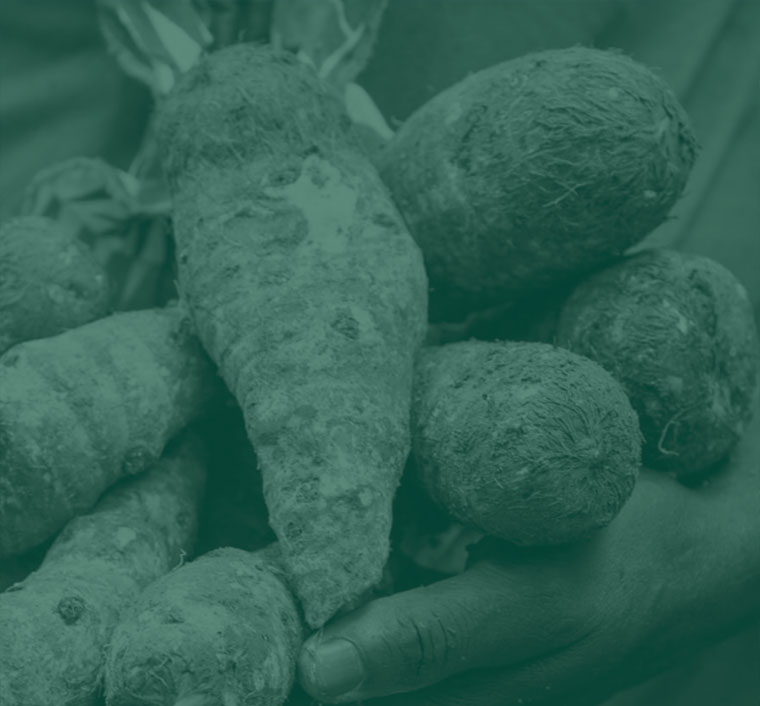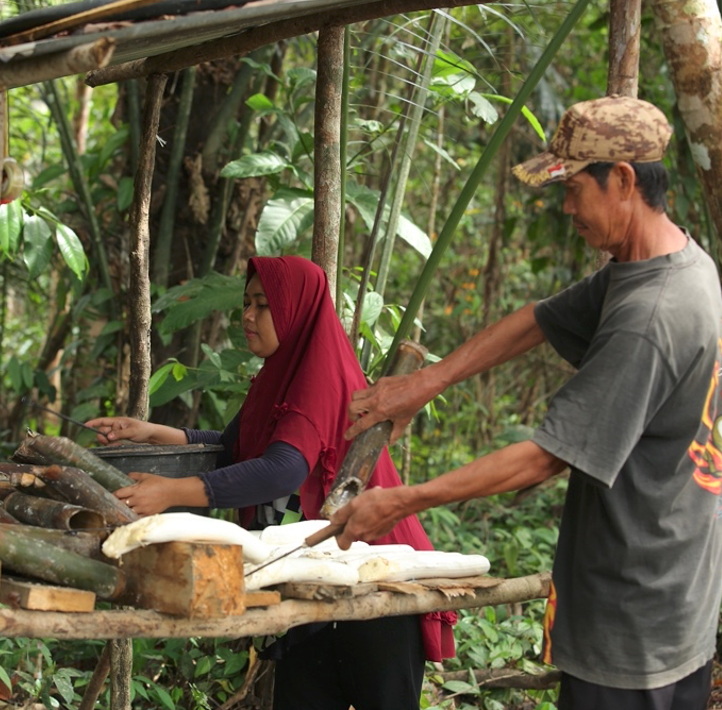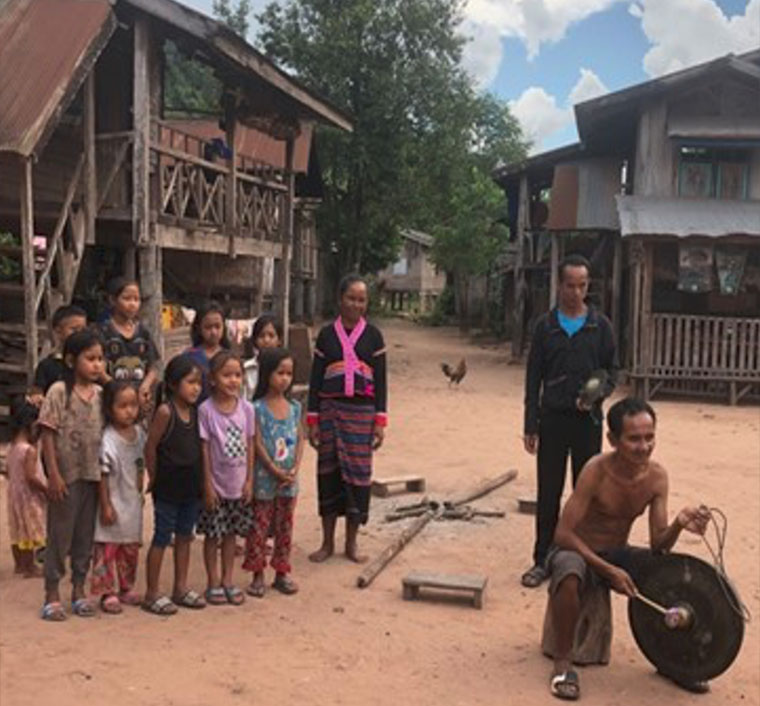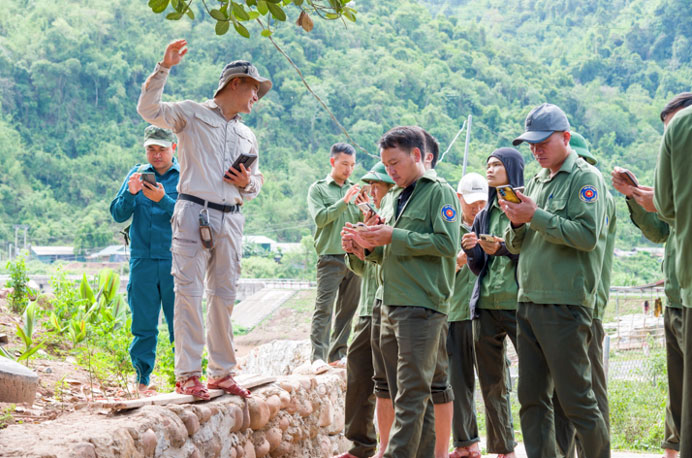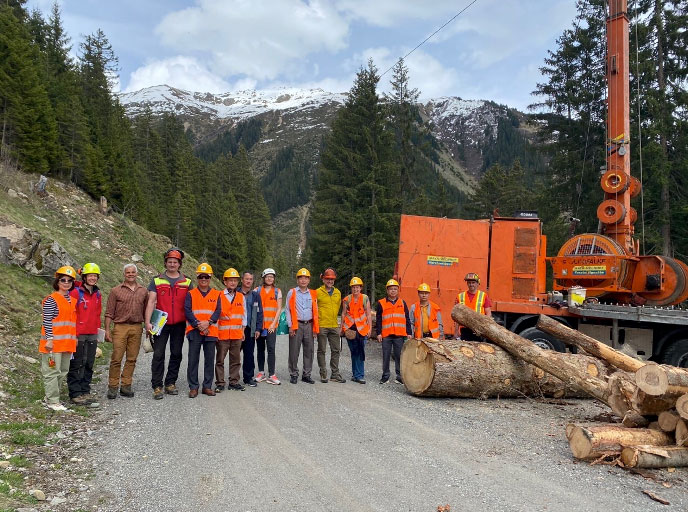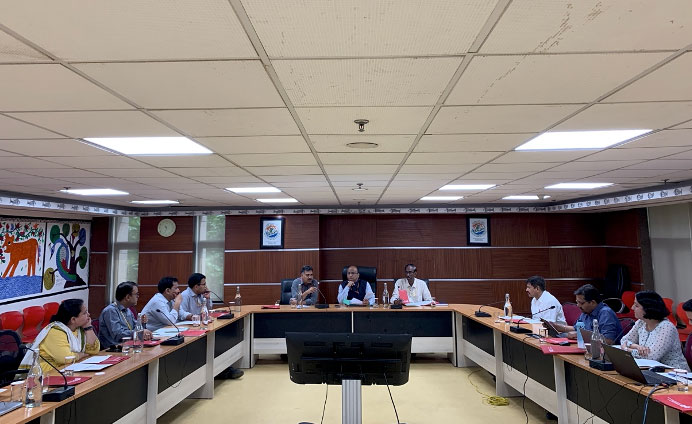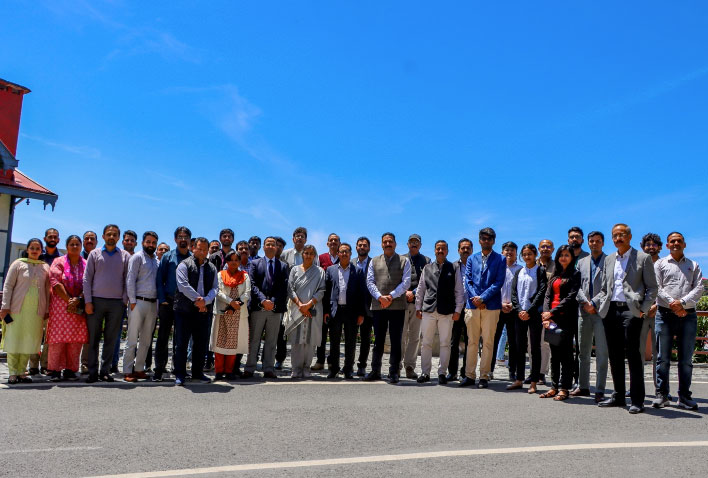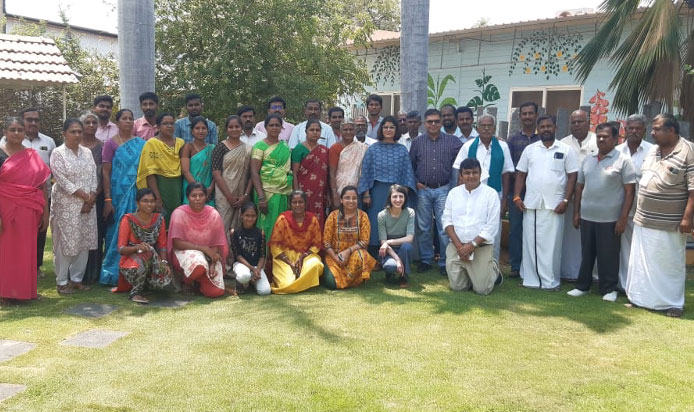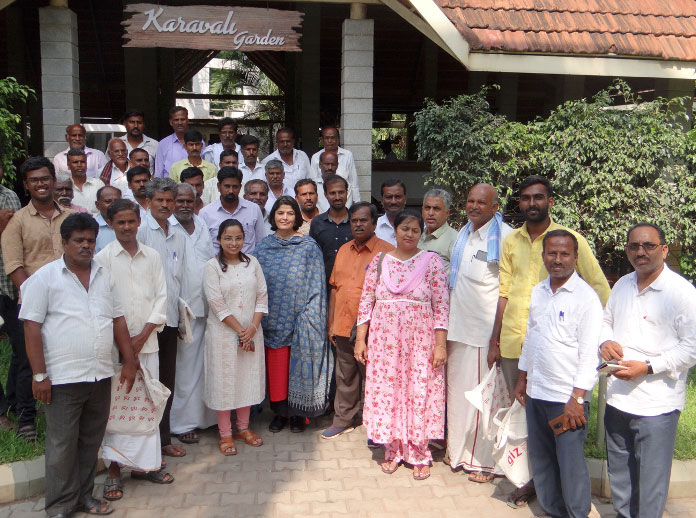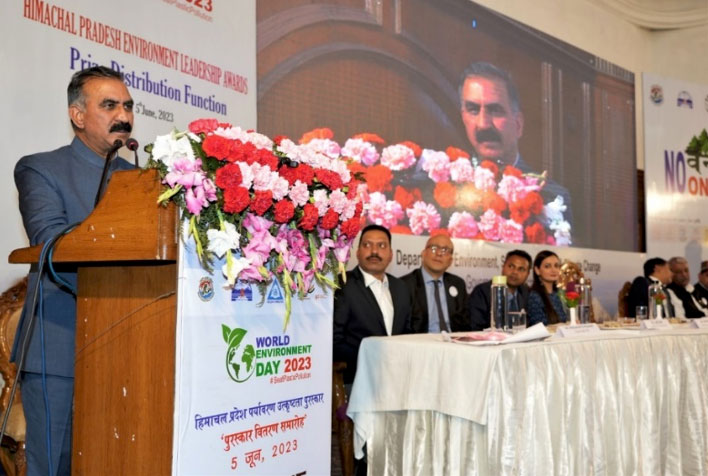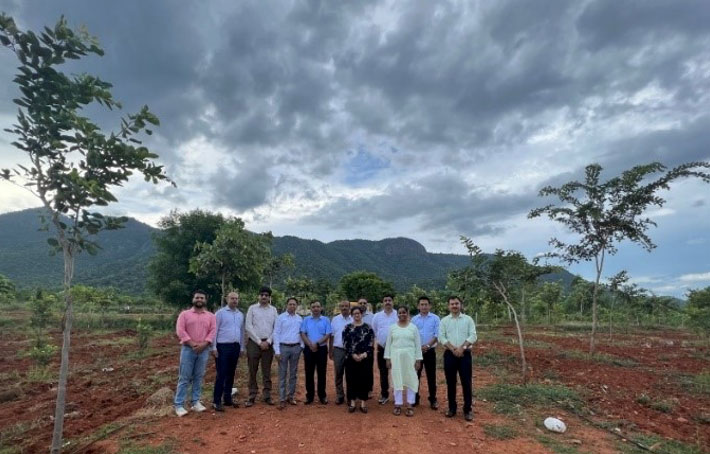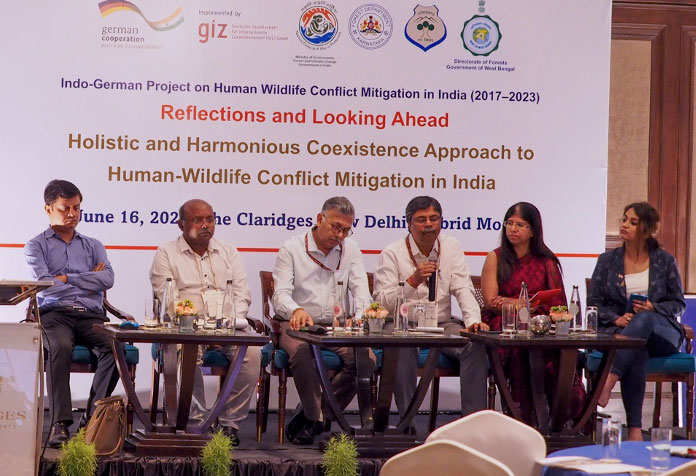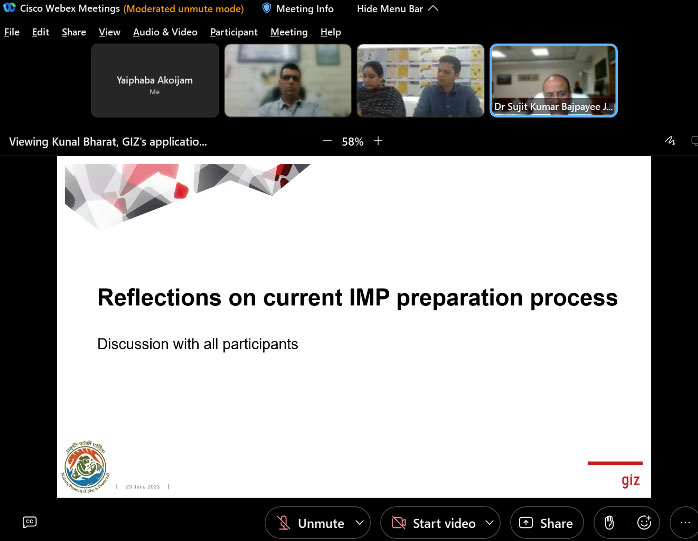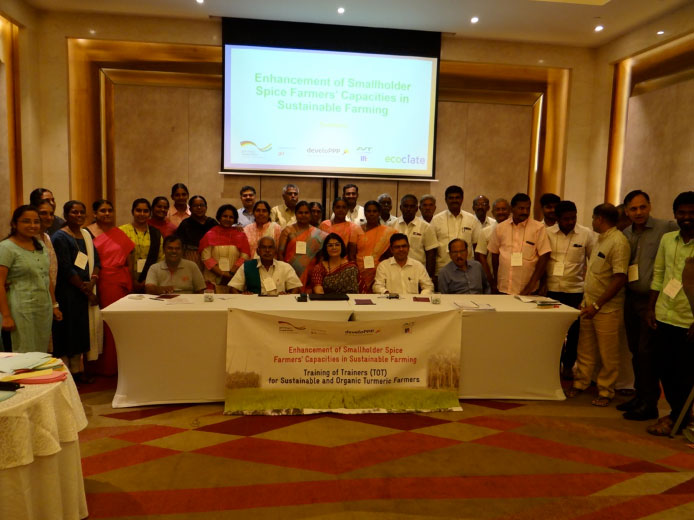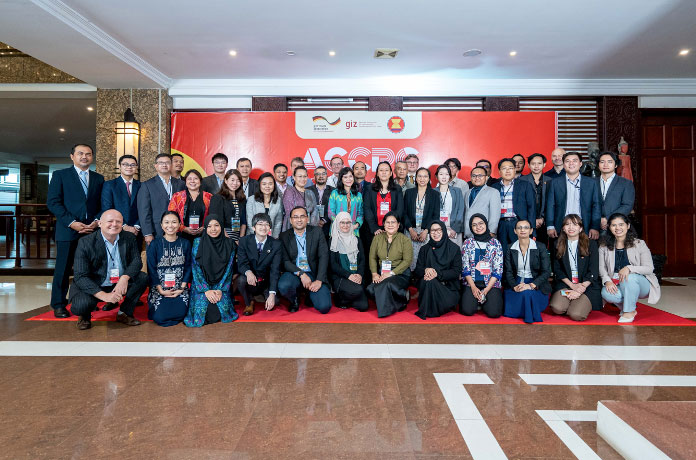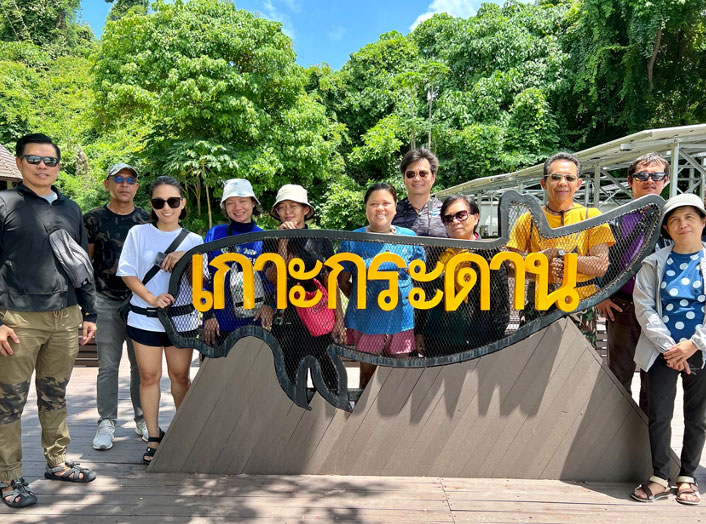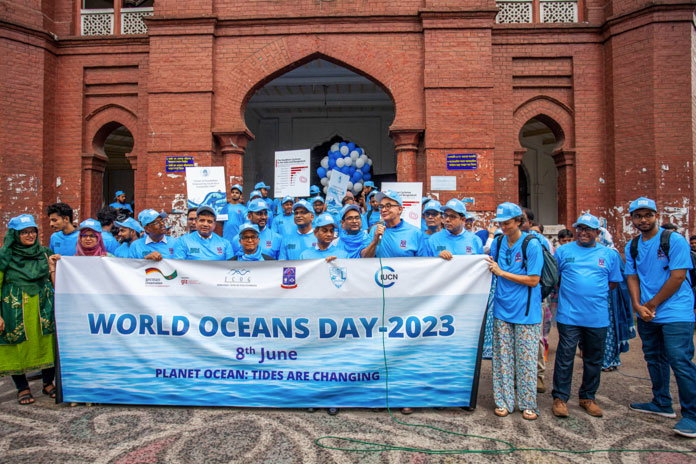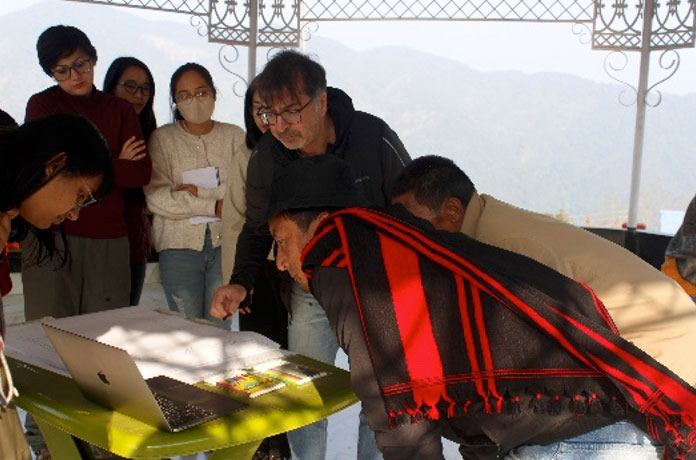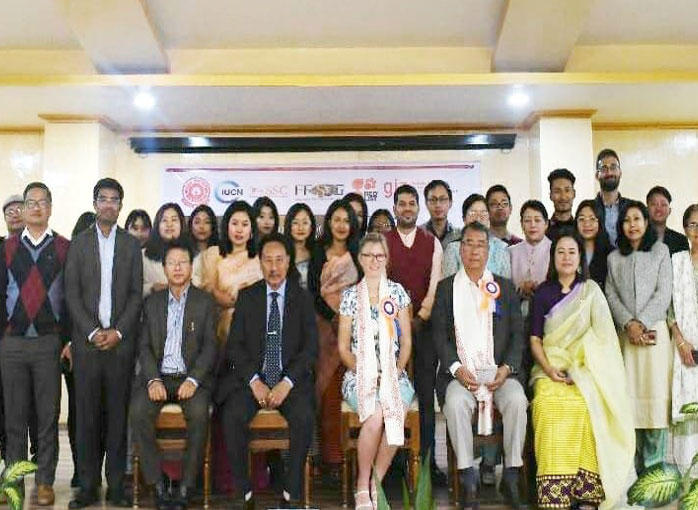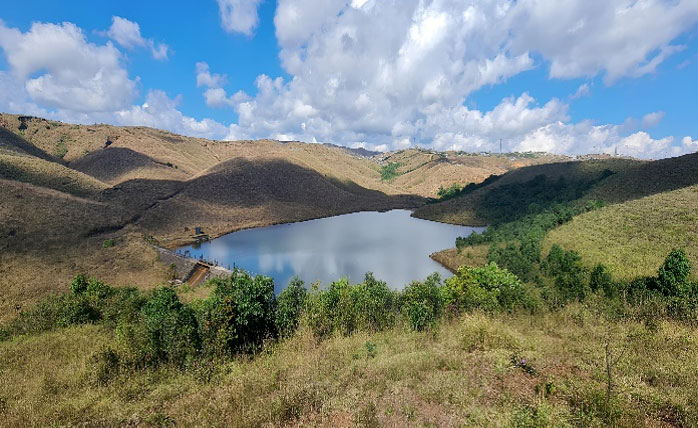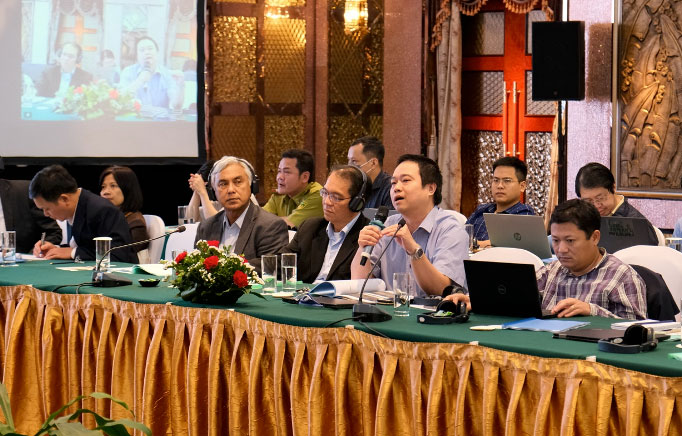
Issue 22, August 2023
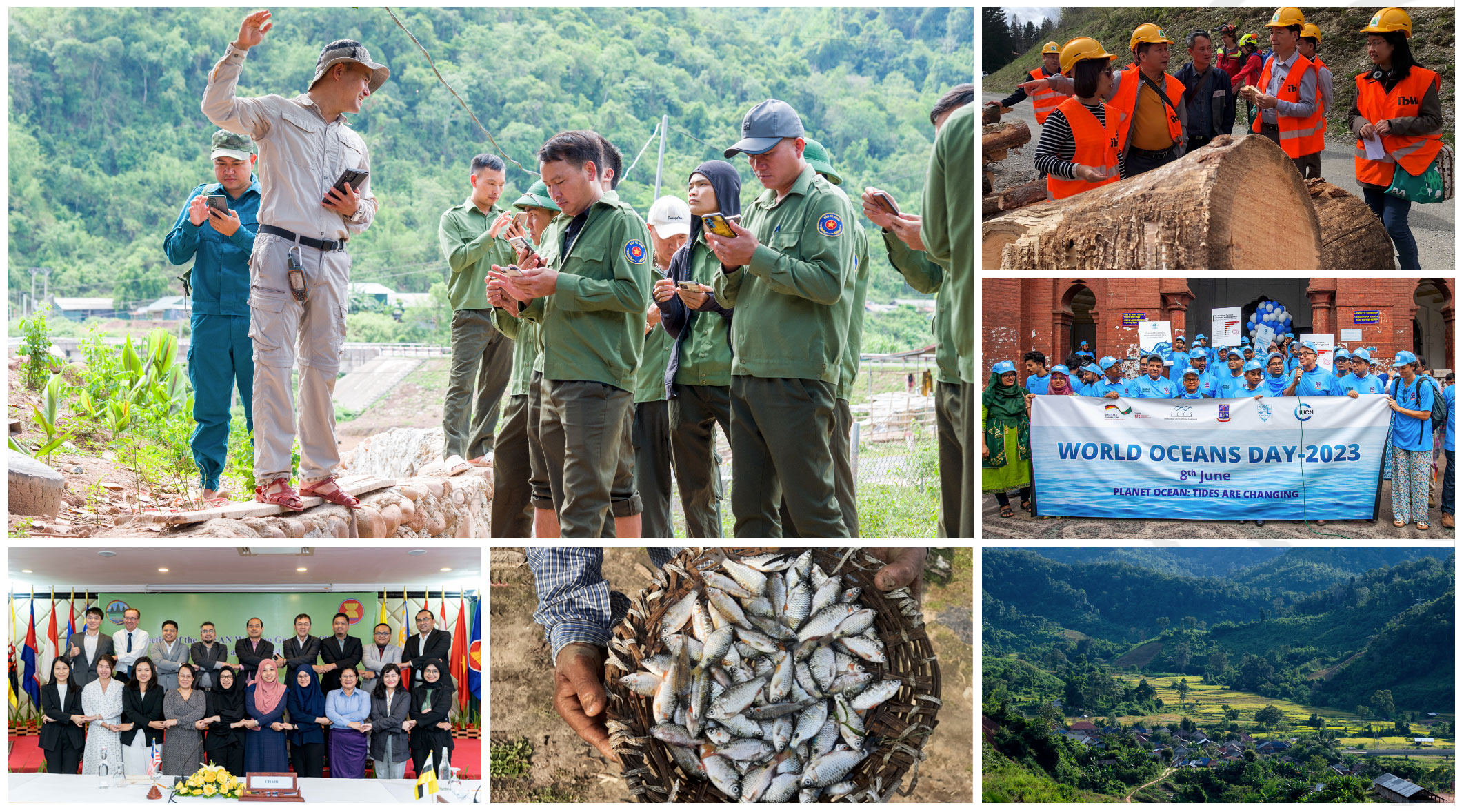
CLICK HERE TO SUBSCRIBE YOUR EMAIL TO OUR MEMBER LIST
SPOTLIGHT FROM SECRETARIAT
Welcome to the summer edition of the SNRD Asia-Pacific newsletter!
Our newsletter is all about bringing you the latest updates and insights filled with informative articles, publications, completed and upcoming events, and more from our members projects across the Asia-Pacific region. As always, our members have shared lots of inspiring stories and knowledge products, we are sure you will find relevant information for your context. Many thanks for all the contributions!
For the design and compilation of this newsletter, we have a new colleague on board in the SNRD AP and TUEWAS Secretariat. Please warmly welcome our new team member Natasha!
With this, we wish you happy reading & send best regards,
Lisa, Donaya, Khaekhai, Natasha

Lisa Hunsinger

Donaya Siamwalla
SNRD AP Network Manager and Public Relations Officer

Khaekhai Tanasansopin
Office Manager

Natasha Krisanalome
SNRD Assistant
SPOTLIGHT FROM SECRETARIAT
Letter of Director of Department APLAC
Dear APLAC colleagues,
Today I am addressing all of you in Asia, Pacific, Latin America and the Caribbean and sending you warm greetings from Eschborn!
We are now in the middle of the year and our dynamic and innovative sector is buzzing as usual. Our figures clearly show how active you were in the 1st half of the year. Cash management is going well – thank you for that! Please continue to keep up the good work so that we can achieve a solid result together at the end of the year.
A few weeks ago, I was able to see the intensity and resilience with which our colleagues on the ground are driving innovations with our partners in Vietnam and Indonesia. Feeling their commitment, heart and soul on the ground shows me anew the importance of our work. It is exciting to see how topics are implemented in an integrated way: In Vietnam, for example, vocational training/TVET is being combined with climate approaches. Moreover, I was also to visit the Dominican Republic and Mexico last week, where I was able to get to know various projects in the field of climate change, tourism and cooperation with the private sector. I am impressed to see how we are improving the situation on the ground for the local population
creating new sources of income and at the same time better protecting the regions from extreme weather events. In addition to exchanging ideas with partners and GIZ colleagues, I was also able to help with a mangrove reforestation and take part in the Climate Finance Festival in Mexico City!
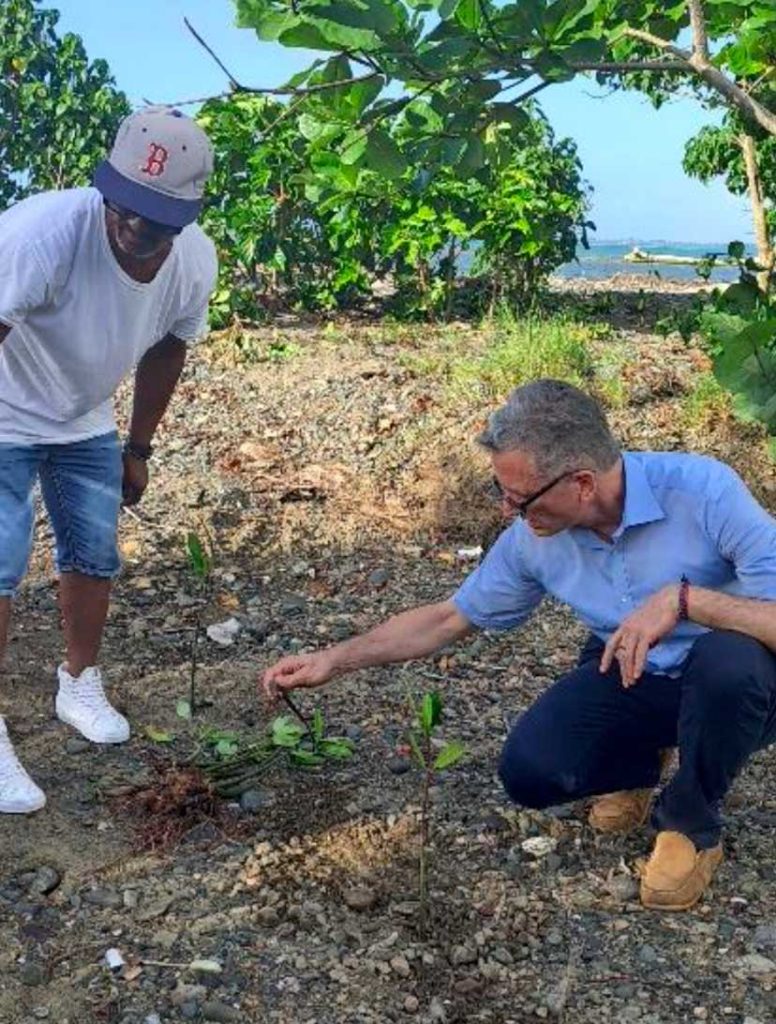
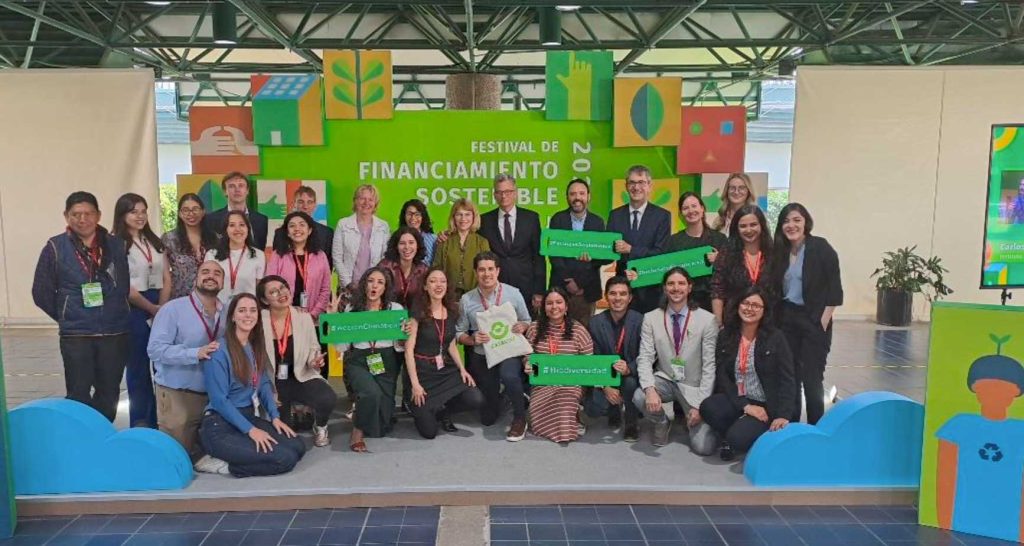
And it is not only me who is traveling, but also many of the German ministers, state secretaries and other governmental representatives who are visiting our regions. I am sure that you have noticed it already: Germany and the EU are increasingly interested in cooperating with Asia and Latin America. Due to the changed geopolitical situation, alliances with partner countries are to be further strengthened. The political attention paid to our regions shows us that we can only tackle global challenges together with our partner countries. And even if our partners and clients do not always agree, we as GIZ can often help build bridges and promote dialogue.
Back from the stage of global politics to our everyday work, from which I know that the shoe often pinches in the countries when it comes to digitalization. Precisely for this reason, I would like to share very good news with you: With the rollout being completed
in early July 2023, Common Portal 2.0 will support administrative processes as a digital solution in more than 95 GIZ partner countries worldwide and significantly simplify communication between country offices and project offices in the field structure. The original version programmed by a small team of developers in the country office in India has been further developed in collaboration with APLAC and DIGITS. I am proud that this technical solution was developed in our department, and I am sure that Common Portal will relieve your daily work in the countries For me, the keyword innovation is one that characterizes our APLAC department. Therefore, I am particularly proud that over 100 colleagues from APLAC submitted more than 50 contributions to the GIZ Innovation Fund on various topics such as Just Transition and feminist development policy.

Digital Capacity Development with atingi: Empowering Learners Worldwide
The word “atingi” originates from Esperanto, meaning “to achieve something.” It’s a fitting name for the GIZ project, which aims to support young people from partner countries in German development cooperation to succeed in their professional endeavors. To achieve this goal, atingi offers an innovative e-learning platform that provides free, locally relevant learning content. With just a computer, tablet, or smartphone, learners can access over 450 courses, significantly enhancing their prospects in the local job market. This accessibility is particularly crucial as internet access continues to grow globally.
atingi collaborates with local partners from Africa, Asia, and Latin America to create its learning content. As part of the Global Programme Digital Transformation, the project works with various companies, organizations, and institutions from business, civil society, science, and politics, such as the Smart Africa Initiative of the African
Union or the International Telecommunication Union (ITU). The Moodle-based platform is also language-friendly, supporting over 100 languages, making it suitable for e-learning in many regions around the world.
Commissioned and funded by the German Federal Ministry for Economic Cooperation and Development (BMZ) and implemented by GIZ in 2019, atingi serves as an effective and free way to provide diverse learning materials. The target audience includes learners aged 16 and above, such as students, job seekers, and entrepreneurs across different sectors. Since its inception, atingi has been instrumental in promoting access to learning content in developing countries, including reaching out to disadvantaged groups such as girls, women, and those residing in rural areas. So far, the platform has benefited over 710,000 learners, highlighting its positive impact on capacity development worldwide.
Moreover, atingi actively engages with more than 340 global partners who appreciate its readily available technical infrastructure, ease of implementation, and the support provided by the atingi team. Regardless of whether you wish to publish a self-paced web-based training or a tutored online course, atingi offers various options for digital capacity development.
This opportunity extends to international development projects, organizations, and partners in German development cooperation countries, enabling them to leverage atingi for digital learning without any cost. Furthermore, they can tap into the existing partner network and freely accessible content to bolster their initiatives.
In conclusion, the atingi e-learning platform is a valuable tool that empowers learners worldwide. By harnessing the potential of digital technology and fostering collaborations, atingi bridges the gap between learning and opportunity. With atingi, learners can unlock their full potential, paving the way for a brighter future for themselves and their communities.
If you are also interested in using atingi for your project, don’t hesitate to reach out!
Learn more on our IDA page here
You have question or would like to get in touch? Email us at help@atingi.org
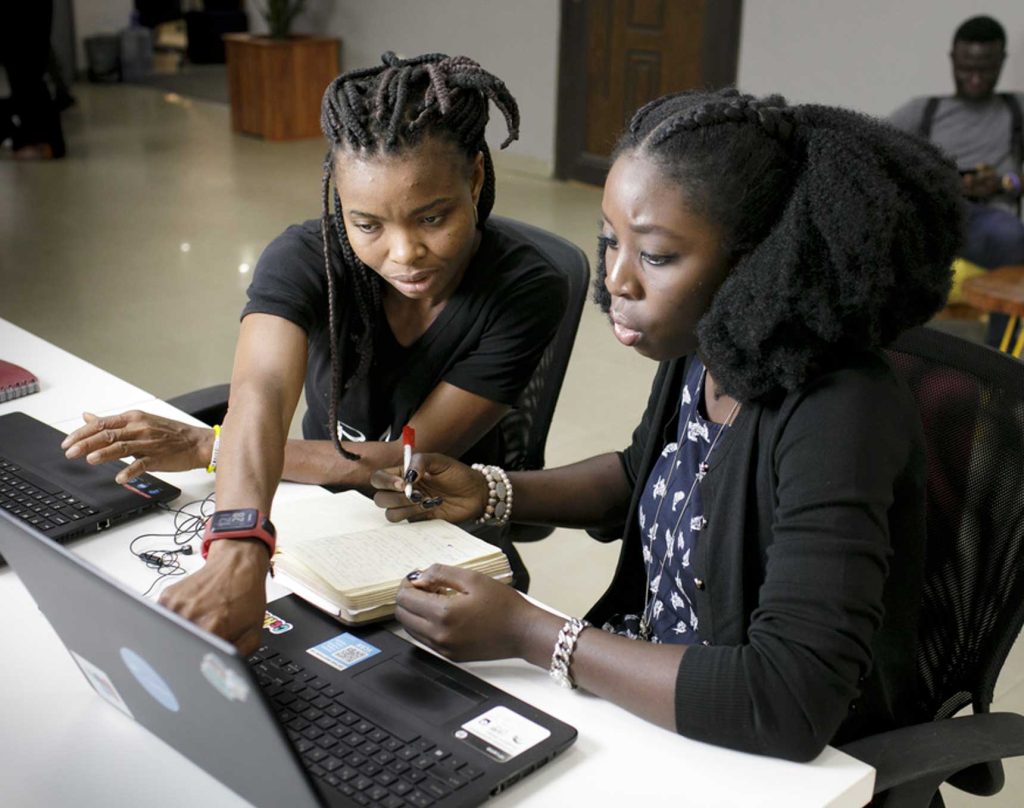
HIGHLIGHTS AND KNOWLEDGE SHARING
The Human-Wildlife Conflict project in India concludes its remarkable journey on 30 June 2023. From picturesque landscapes to collaborative frameworks, it leaves scope for innovation and progress in safeguarding harmonious coexistence between humans and wildlife.
Unveiling sustainable turmeric farming in India – a vital spice crop for smallholder farmers. Discover how the ‘Enhancement of Smallholder Spice Farmers’ Capacities in Sustainable Farming’ project supports organic cultivation, safeguards soil health, and empowers livelihoods, promoting a greener future.
Embark on a journey of Sustainable Agriculture through the animated video playlist. Explore integrated pest and nutrient management, organic farming, soil health, and more. Embrace sustainable practices for a better planet
Since the KMGBF at COP 15 CBD in 2022, Indonesia has started the process of formulating the new IBSAP for 2024. GIZ has been providing technical advice and support throughout the process of the NBSAP formulation.
Reviving the productivity of rice-field fisheries with the aims of improving nutrition intake among young children and women in their productive ages, promote food accessibility and create supplemental incomes among poor farmers in rural Cambodia
In India, Securing Nutrition, Enhancing Resilience (SENU) Project is implementing an innovative approach of Community Nutrition Gardens (CNGs) which has a multisectoral innovative model with the core objective of availability of year-round nutritious food: The confluence of agroecology, nutrition, livelihood, and women empowerment is synergistic and mutually beneficial.
Unleashing small fish’s power: Revolutionizing aquaculture for a sustainable future. Discover micronutrient-rich small indigenous fish species transforming food security in India with WorldFish’s groundbreaking project. WorldFish leads the way with breakthrough hatchery-based breeding of SIS.
The ASEAN-German Climate Action Programme (CAP) has commenced. It is a flagship project for Germany as it is the first cooperation between Germany and ASEAN in the sphere of climate policy
You will learn about key aspects of planning, implementation, governance, and monitoring of NbS actions. It includes six main modules and tangible examples of NbS implementation. You will earn a certificate for completing the course.
Check out which beneficial use cases of land use planning could be found like reducing land conflicts, contributing to forest and environmental protection, improving land tenure security.
The Lao PDR negotiates a FLEGT-VPA (Voluntary Partnership Agreement) with the EU since 2015, whereas communications on a potential engagement started as early as 2012. The negotiation process has initiated important reforms in the forest sector which reach beyond a future partnership agreement.
By Apiradee Treerutkuarkul and Kiattiyote Wongudomlert
Thailand and Germany join forces in the TGC-EMC Programme, promoting renewable energy from biomass to combat climate change and benefit farmers.
Non-timber forest products offer significant nutritional and income benefits for indigenous communities but are undermined by limited market access and other challenges. Better awareness, skilling, improved access to finance and technology are unlocking this potential.
Funding channeled through the Agri-Business Facility for Africa (ABF) now also in Asia? – Yes, ABF’s Matching Grant Fund co-financed by the European Union covers all ACP (African, Caribbean and Pacific) member states!
The Sustainable Agriculture for Forest Ecosystems (SAFE) project calls for Ideas from private-sector initiatives seeking to promote sustainable, deforestation-free, and legal agriculture production schemes in Indonesia.
In 2022, eight (8) Young ASEAN Storytellers (YAS) from Cambodia, Indonesia, Lao PDR, and Viet Nam were selected to visit an ASEAN Heritage Park (AHP) in their own country and create and tell powerful stories of our shared natural and cultural heritage to a wide range of audiences through various platforms and media.
DOCUMENTS AND PUBLICATIONS
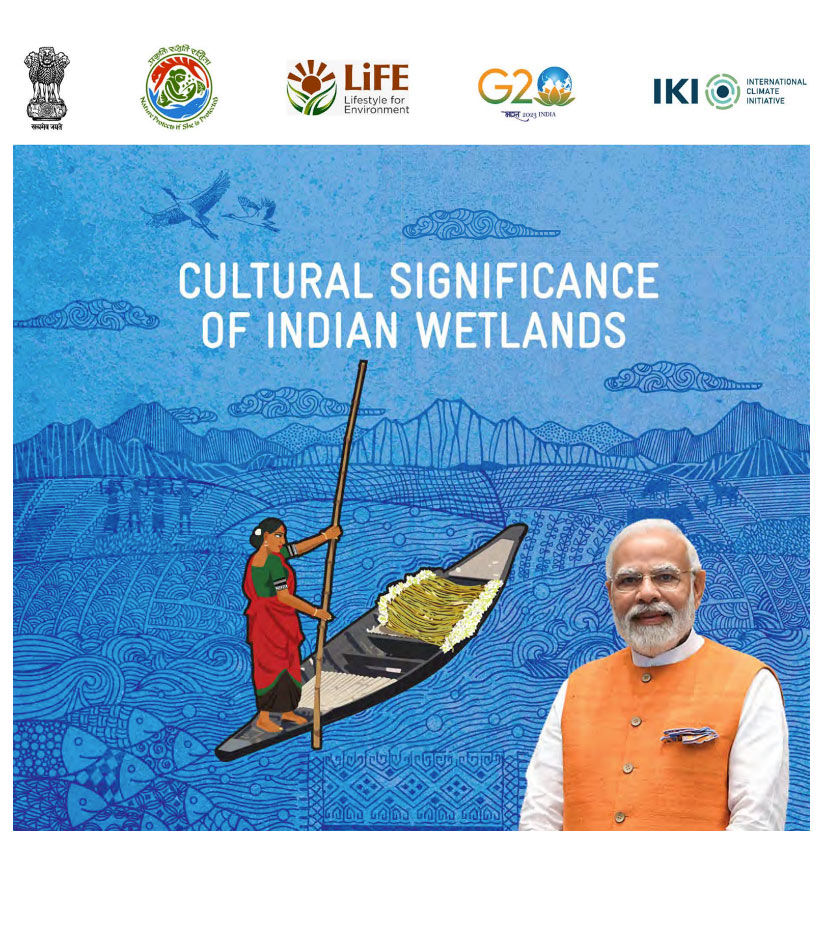
Cultural Significance of Indian Wetlands
Wetlands have sustained human civilizations since time immemorial, offering countless services such as water, food, navigation, disaster protection, and habitats for biodiversity. In India, wetlands are revered and deeply ingrained in culture and divinity. The publication has been developed under the IKI-BMUB-supported Technical Cooperation project ‘Wetlands Management for Biodiversity and Climate Protection’ to take a closer look at the natural and cultural linkages of Indian wetlands. The book is divided into five interlinked sections on livelihoods, wise use, faith & spirituality, traditional knowledge, and conservation, shedding light on the harmonious coexistence of people and wetland ecosystems.
Key buzzwords
#IndianWetlands Indian Culture and Wetlands, Wetland Management, biodiversity
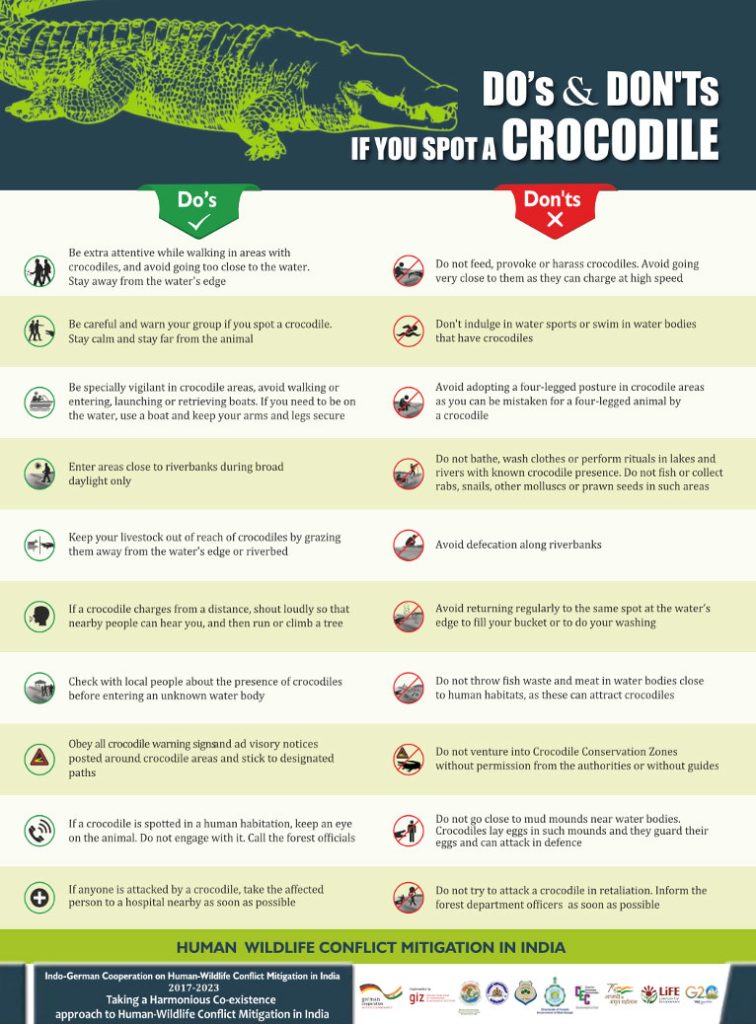
10 key species-in conflicts Posters: Human-Wildlife Conflict Mitigation in India
These posters are designed to foster a harmonious coexistence, safeguarding both humans and 10 key species-in conflicts: Leopard, Elephant, Wild Pig, Crocodile, Rhesus Macaque, Snakes, Sloth Bear, Gaur, Bluebull, and Blackbuck. They present crucial facts and specific details about these species, along with guidelines on how to act when encountering them. The posters have been thoughtfully released in four prominent Indian languages: Bangla, English, Hindi, and Tamil to raise awareness and ensure the protection of all parties affected by human-wildlife conflicts.
Key buzzwords
#Species in conflict, Human-Wildlife Conflict, Biodiversity, #HWCMitigation #HWCPosters
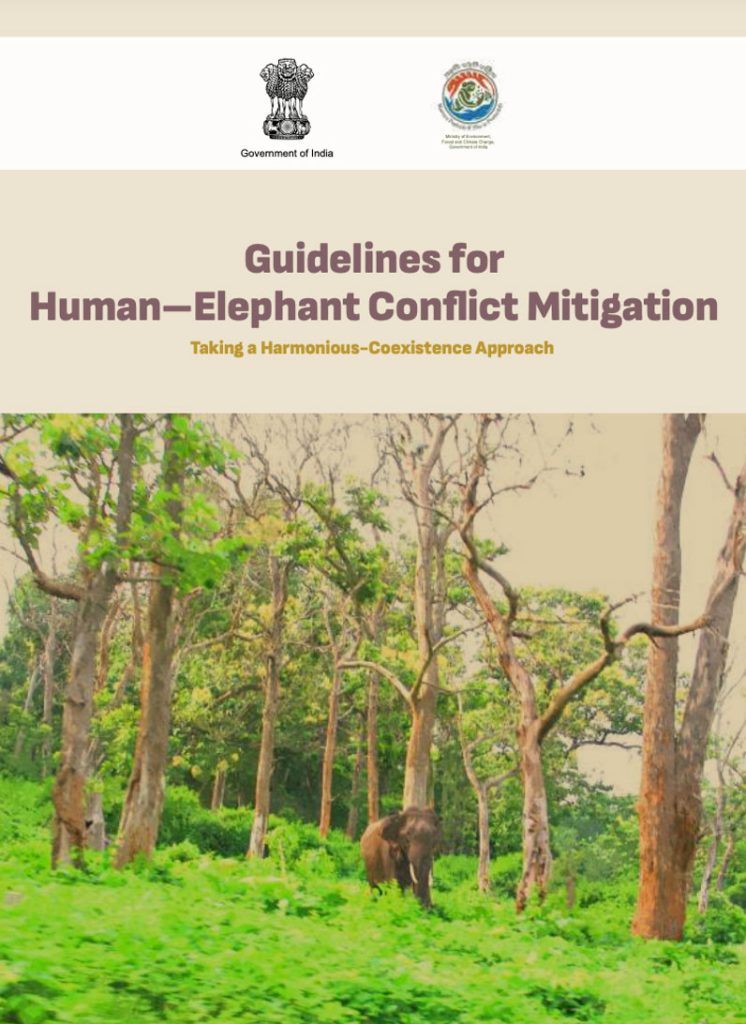
Human-Wildlife Conflict Mitigation Guidelines (Compiled Version)
Fourteen guidelines were developed for ten species involved in conflicts, along with four additional guidelines addressing cross-cutting issues. The ten key species in conflict include Leopard, Elephant, Wild Pig, Crocodile, Rhesus Macaque, Snakes, Sloth Bear, Gaur, Bluebull, and Blackbuck. The cross-cutting issues covered are Forest and Media, Occupational Health and Safety, Crowd Management, and Health Emergencies and Potential Health Risks. These guidelines were developed in collaboration with the National Center for Disease Control (NCDC) and the Ministry of Health and Family Welfare, utilizing a participatory, inclusive, and integrated approach involving relevant stakeholders and sectors.
Key buzzwords
#Species in conflict, Human-Wildlife Conflict, Biodiversity, #HWCMitigation #HWCPosters
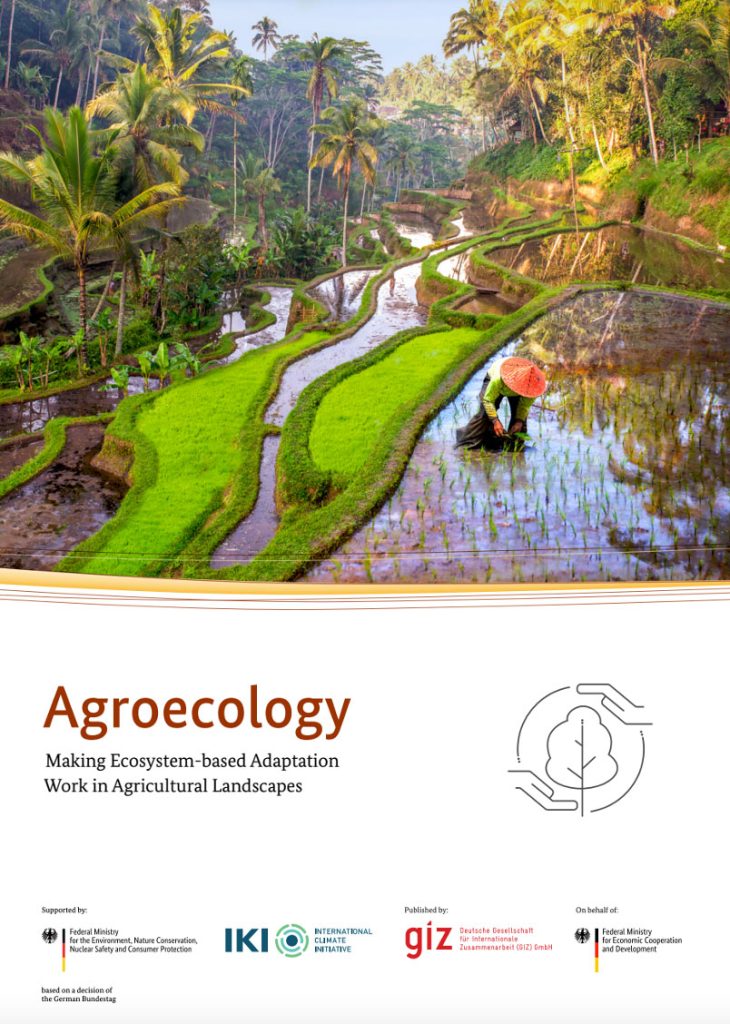
Agroecology: Making Ecosystem-based Adaptation (EbA) Work in Agricultural Landscapes
Climate change, food insecurity, biodiversity loss and land and water degradation are all interconnected crises that call for systemic responses. On this account, this new report suggests linking two holistic concepts with the aim of transforming food systems in a climate- and nature-friendly way: It argues that EbA and agroecological approaches are ‘two sides of the same coin’ and should be brought together. With a Five-Step-Approach, the report offers a comprehensive method for country-level implementation. Three case studies from India, Kenya, and Guatemala present agroecological projects as pathways for EbA. In India, for example: The Community Managed Natural Farming Approach.
Link to Publication
Link to Publication
Key buzzwords
#Agroecology, Ecosystem-based Adaptation, India
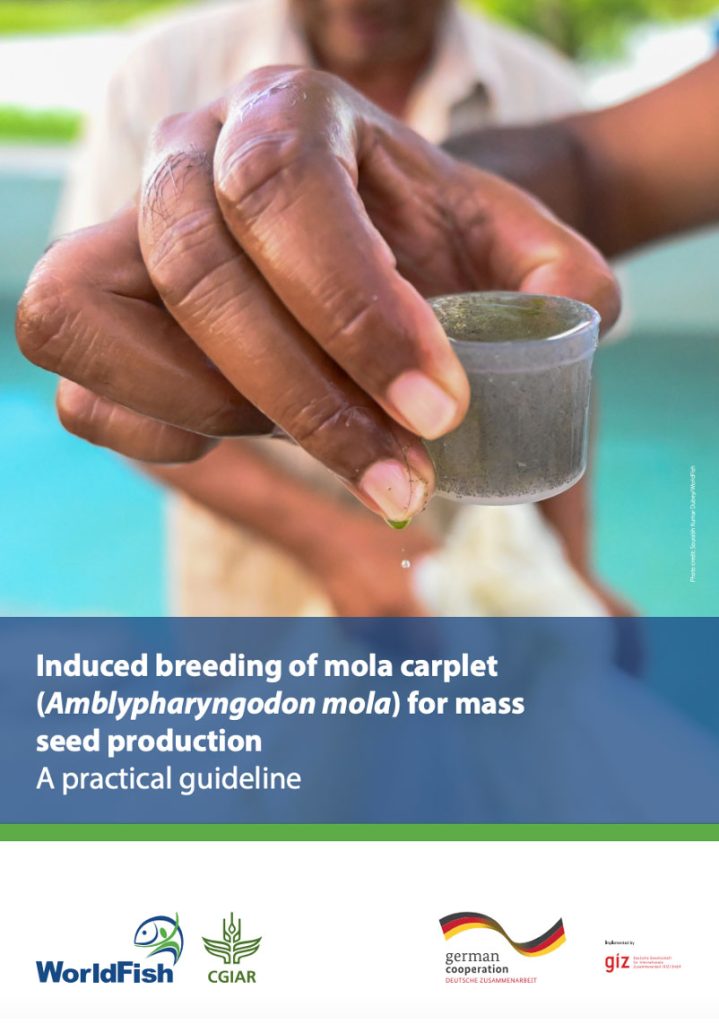
Induced breeding of mola carplet (Amblypharyngodon mola) for mass seed production A practical guideline
The lack of standardized hatchery breeding techniques for mass-producing Mola seed, a nutrient-dense small indigenous fish in South Asia, hindered the full potential of nutrition-sensitive aquaculture. This practical manual provides a unique, step-by-step guideline for induced breeding of mola in a hatchery. With a straightforward eight-step protocol, existing fish hatchery operators can easily adopt it. This guideline aims to assist any fish hatchery interested in breeding mola, contributing significantly to the development of nutrition-sensitive aquaculture.
Key buzzwords
–
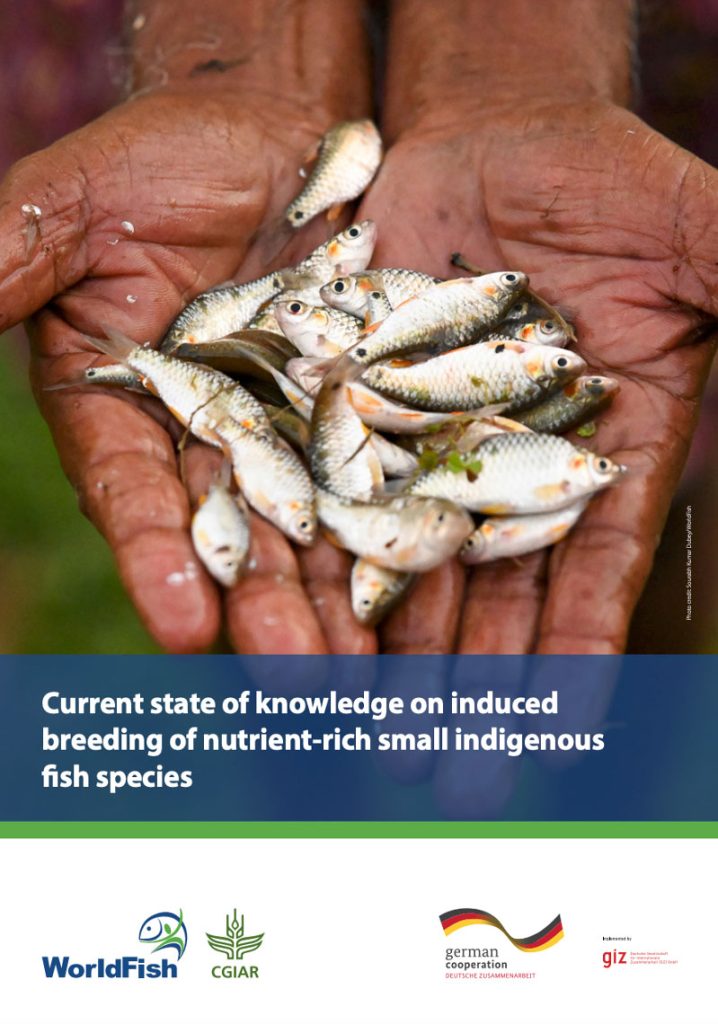
Current state of knowledge on induced breeding of nutrient-rich small indigenous fish species
A comprehensive understanding of fish reproductive biology, breeding behavior, and habitat is vital for successful induced breeding and mass seed production of small indigenous fish. This understanding aids hatchery operators in selecting suitable techniques, managing environments, and identifying optimal breeding windows for specific fish. This report aims to assess the current understanding of induced breeding techniques for specific small fishes while also identifying crucial gaps in knowledge to address. The species were selected focusing on their nutritional value, including essential vitamins and minerals. The chosen species can play a crucial role through food-based strategy in addressing nutritional deficiencies among children and pregnant women.
Key buzzwords
–
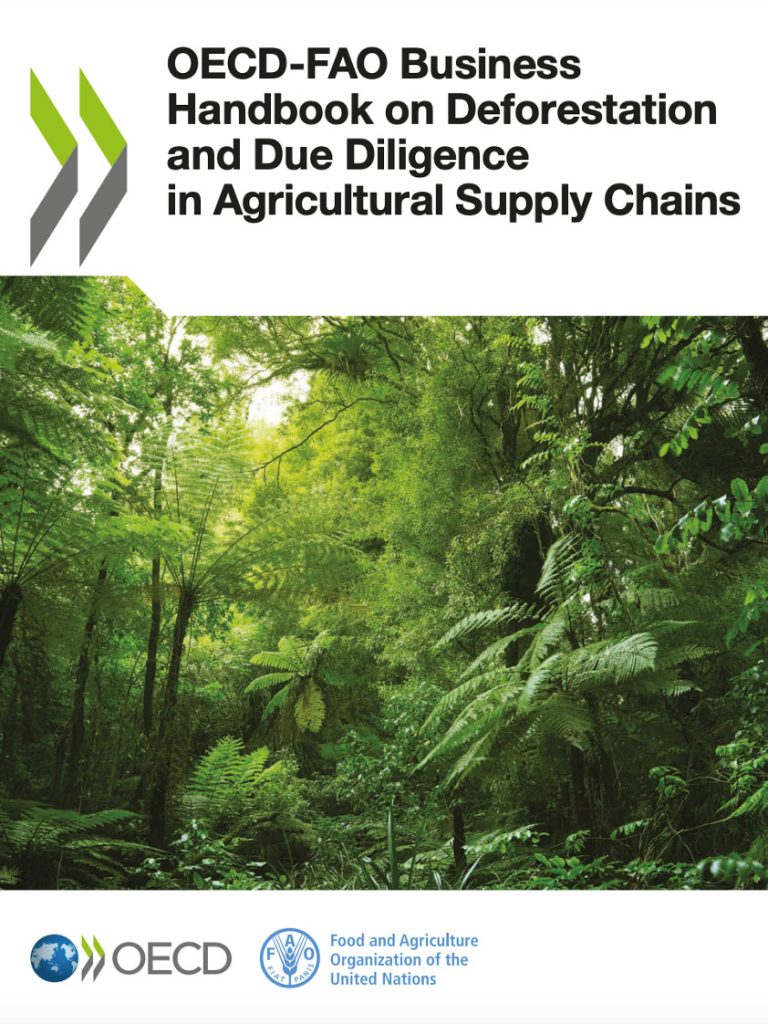
OECD-FAO handbook for corporations on deforestation and due diligence in agriculture
OECD and FAO have published a new handbook designed to help corporations address deforestation and forest degradation risks in global agricultural supply chains through risk-based due diligence. Aimed at companies in the agricultural and food industry along the entire supply chain, the handbook provides information that helps companies implement risk-based due diligence processes to combat deforestation. Funding for the handbook was provided by Deutsche Gesellschaft für Internationale Zusammenarbeit(GIZ) GmbH on behalf of the German Federal Ministry for Economic Cooperation and Development.
Key buzzwords
OECD, FAO, Deforestation, Forest, Due Diligence
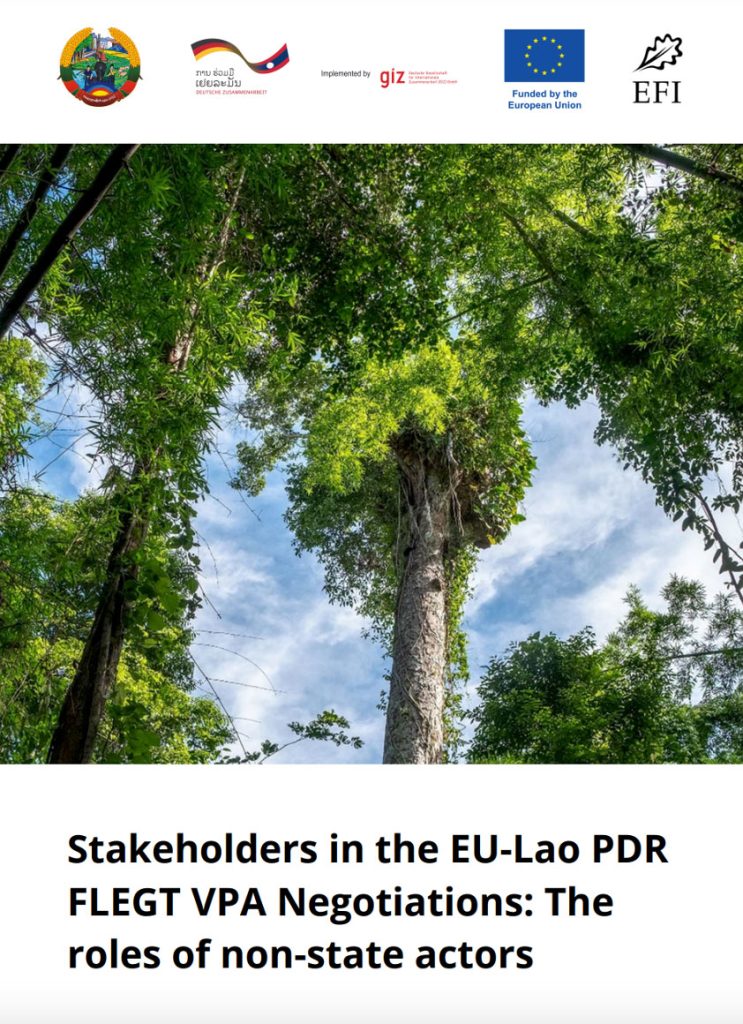
Role of non-state actors in the EU-Lao PDR FLEGT-VPA negotiations
The paper by the European Forest Institute (EFI), EU-FLEGT Asia Programme and GIZ-ProFEB takes stock of the involvement of non-state actors (civil society organisationsand the private sector) in the negotiations of the Lao PDR with the European Union on the Forest Law Enforcement, Governance and Trade (FLEGT) Voluntary Partnership Agreement (VPA). The paper provides a comprehensive account of the stakeholder engagement structures that are formally established to ensure that the FLEGT VPA negotiations in Lao PDR are participatory and consultative. The paper then narrows the focus to assess how non-state actors got involved and explain their roles and their engagement in influencing the content and direction of the EU-Lao PDR FLEGT VPA.
Key buzzwords
FLEGT-VPA, multi-stakeholder negotiations, Lao PDR
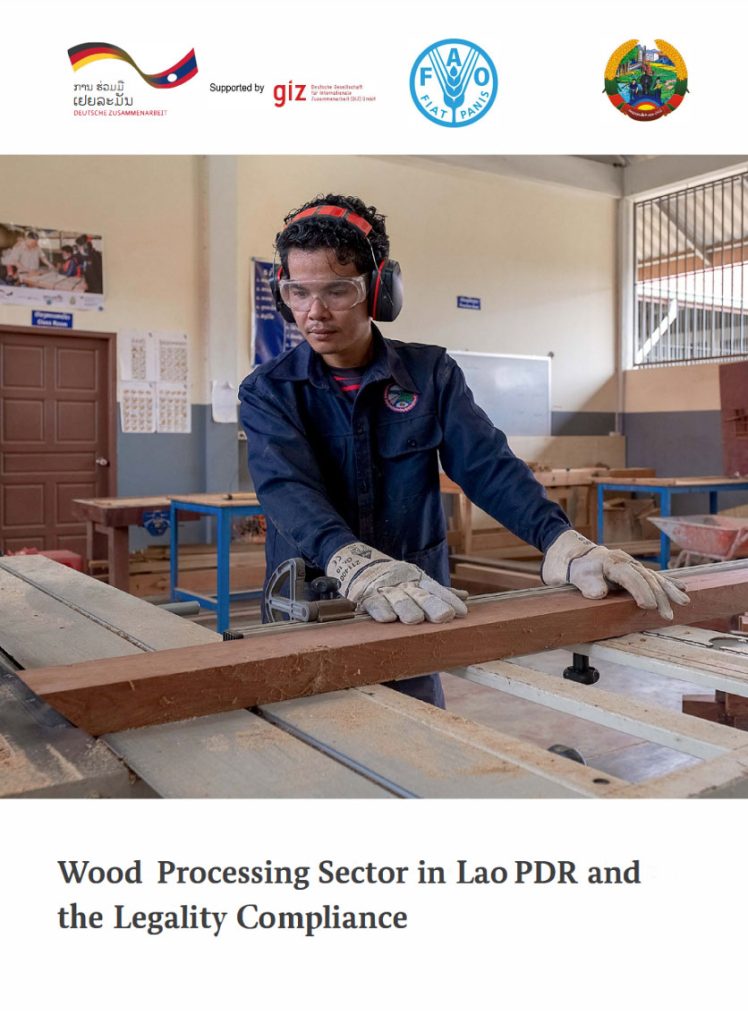
Training Manual on Wood Processing Sector in Lao PDR and Legality Compliance
To effectively work towards the implementation of the Lao Timber Legality Assurance System (TLAS), ProFEB, in collaboration with ACIAR (Australian Centre for International Agricultural Research) and FAO, have collaborated on the development of a training program. The program aimed to support the wood processing companies in Lao PDR to comply with the national timber legality requirements and strengthen their internal management system and production efficiency through the application of input/output monitoring. The program build technical and didactic capacity for 16 trainers to be able to build capacity and train wood processing companies, vocational training institutions and government staff. The training manual has been used as a guide for trainers and students in implementing the program.
Key buzzwords
FLEGT-VPA, Lao PDR, Wood processing, Timber Legality
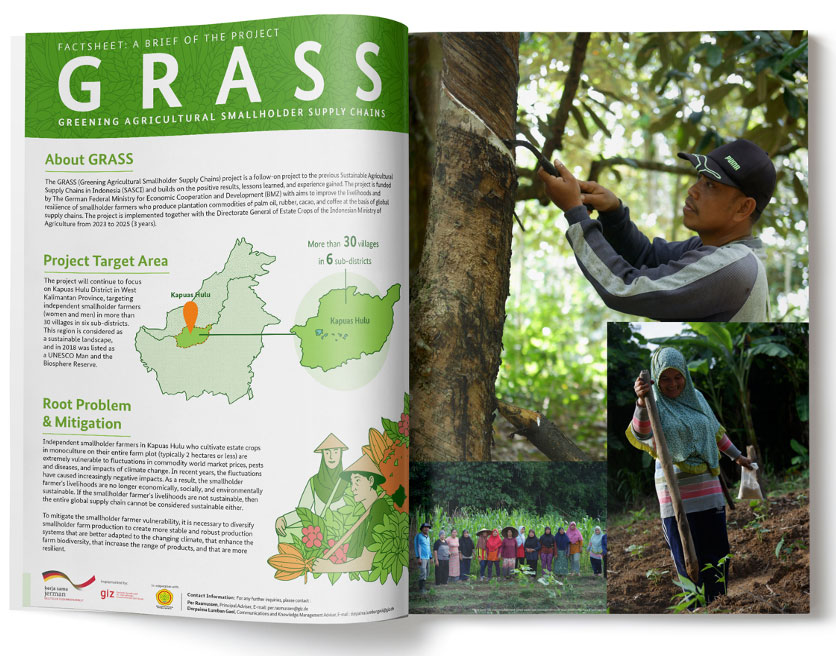
Introducing the GRASS Project: Improving the Resilience of Commodity-Producing Smallholder Farmers in Kapuas Hulu, Indonesia
We are delighted to present the factsheet of the GRASS Project, a project aimed at empowering commodity-producing smallholder farmers in Kapuas Hulu and transforming the way they approach their agriculture. This project is a follow-up to the successful SASCI (Sustainable Agricultural Supply Chains in Indonesia) project and will be implemented over the next three years (2023-2025) in partnership with the Indonesian Ministry of Agriculture. The GRASS Project fosters sustainable growth and prosperity for Kapuas Hulu’s farmers, bolstering Indonesia’s agricultural sector. Our commitment with partners ensures a positive, lasting impact on these communities.
Key buzzwords
#GRASSProject #SustainableAgriculture #SmallholderFarmers #Resilience #Indonesia
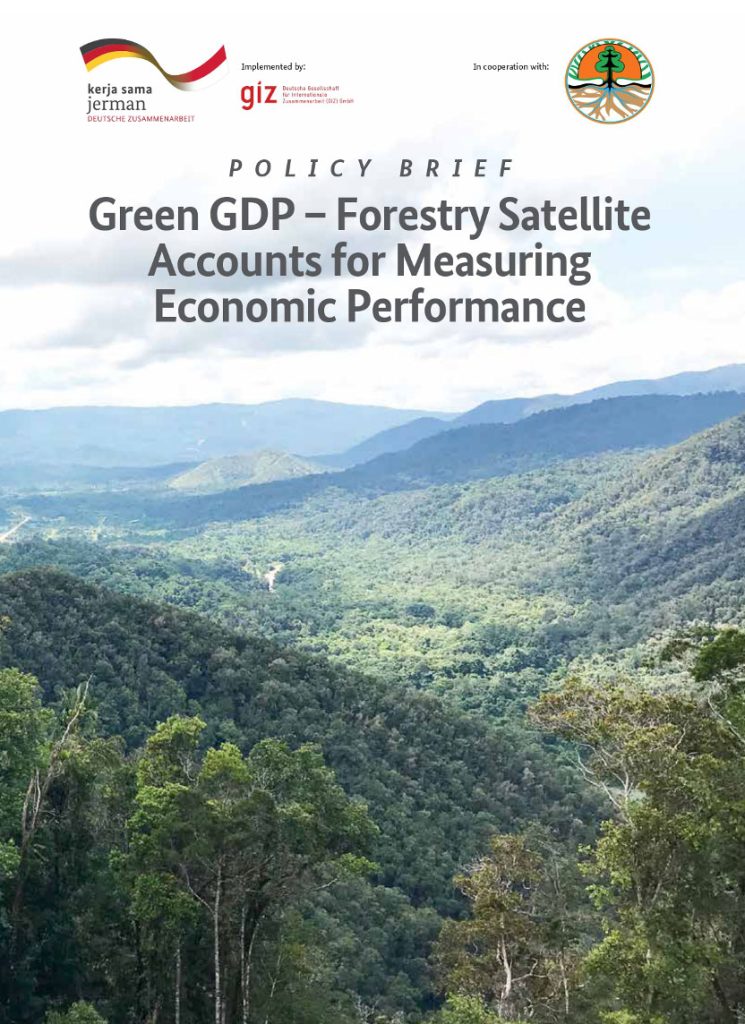
Green GDP: Forestry Satellite Accounts for Measuring Economic Performance
The policy brief highlights the challenge of accurately valuing and incorporating the various goods and services provided by forests, beyond timber, into the national Gross Domestic Product (GDP) of Indonesia. Conventional GDP accounting systematically underestimates the contribution of the forestry sector to the national GDP, which raises concerns about the management of the country’s vast natural resources. To address this issue, the paper proposes the use of so-called satellite accounts, which are commonly used supplementary statistics linked to conventional GDP accounting. Forestry satellite accounts can help to better assess and reflect the economic significance of forests and their impact on Indonesia’s economy.
Key buzzwords
Forestry, GDP, Bioeconomy, Green Growth
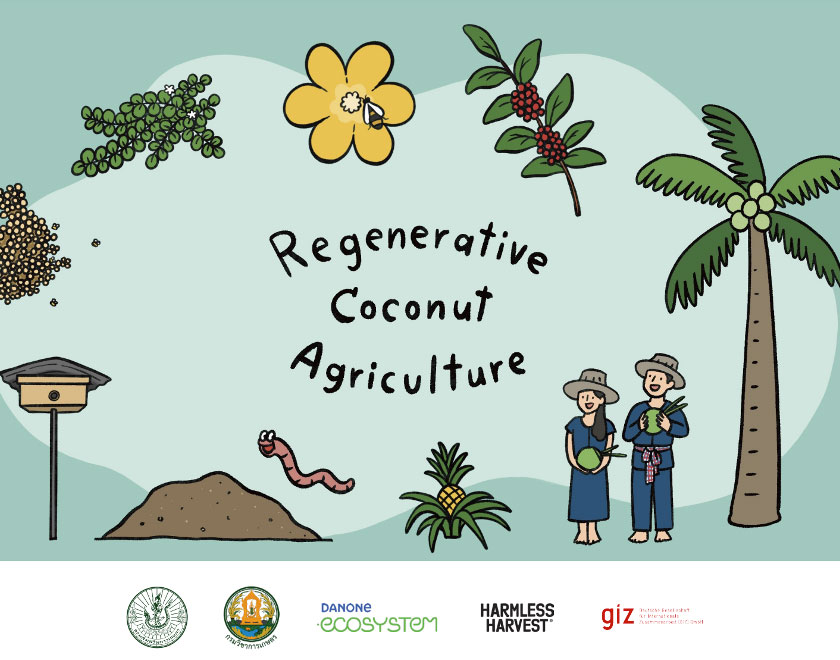
Regenerative Coconut Agriculture
There are alternative farming practices, which help make farms more resilient and sustainable, known as “Regenerative Agriculture”. This way of farming offers climate friendly solutions to ongoing problems such as rebuilding the health of soils to reduce soil erosion, strengthening the resiliency of farms through diversification, and reusing agricultural waste to make organic compost.
Key buzzwords
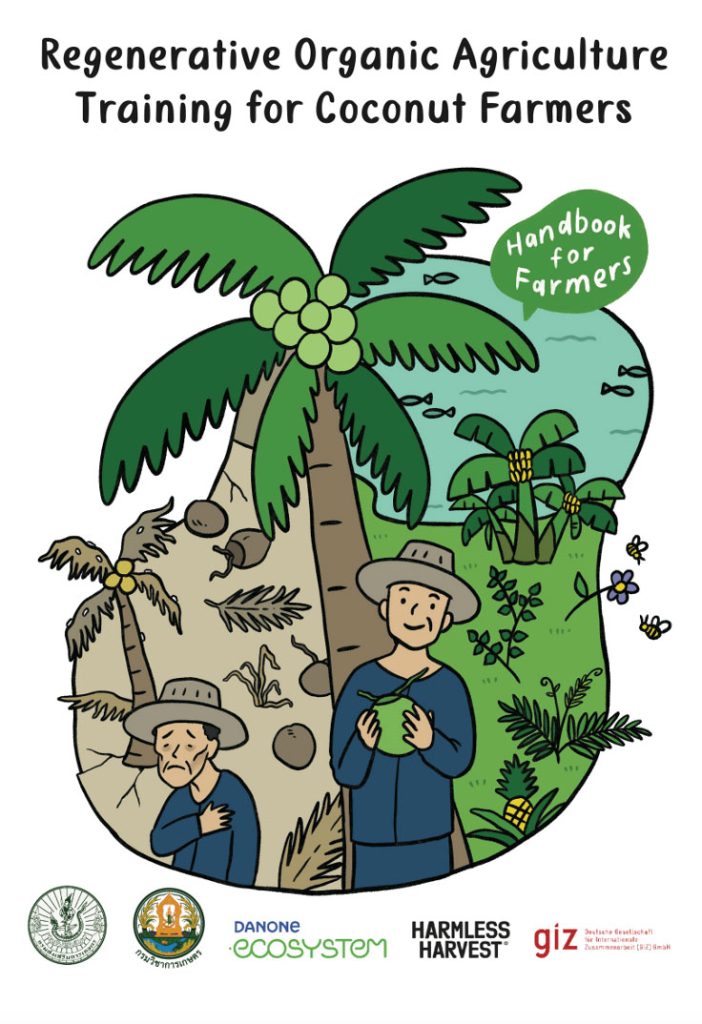
Regenerative Organic Agriculture Training for Coconut Farmers
This training was developed by the Regenerative Coconut Agriculture Project (ReCAP), which is funded by Harmless Harvest and Danone Ecosystem Fund. The project was launched in June 2020 and is implemented by the Deutsche Gesellschaft für Internationale Zusammenarbeit (GIZ) GmbH with the support of Harmless Harvest in central Thailand (Nakhon Pathom, Ratchaburi, Samut Sakhorn and Samut Songkram). The contents of the training are based on existing knowledge from the Rodale Institute and training materials of the Department of Horticulture, Faculty of Agriculture at Kamphaeng Saen, Kasetsart University, Harmless Harvest, and GIZ. Furthermore, the training materials were tested by selected ReCAP pilot farmers who were the frst to adopt regenerative organic practices on their coconut farms in Thailand, and then adapted based on their experiences and lessons learned.
Key buzzwords
EVENTS, TRAININGS AND WEBINARS
COMPLETED EVENTS
4-9 June 2023 I Muong Nhe Nature Reserve, Viet Nam
May 2023 I Germany and Switzerland
26 April 2023 I New Delhi, India
11 May 2023 I Shimla, Himachal Pradesh
11 May 2023 I Shimla, Himachal Pradesh
3 June 2023 I Karnataka, India
5 June 2023 I Shimla, Himachal Pradesh
12-16 June 2023 I Mettupalayam, Tamil Nadu
6-7 July 2023 I Tamil Nadu, India
25 May 2023 I Siem Reap, Cambodia
23 June – 20 July 2023 I Thailand
8 June 2023 I Dhaka University, Bangladesh
14-17 February 2023 I Poilwa village, Nagaland
24 March 2023 I Sohra, Meghalaya
24 March 2023 I Sohra, Meghalaya
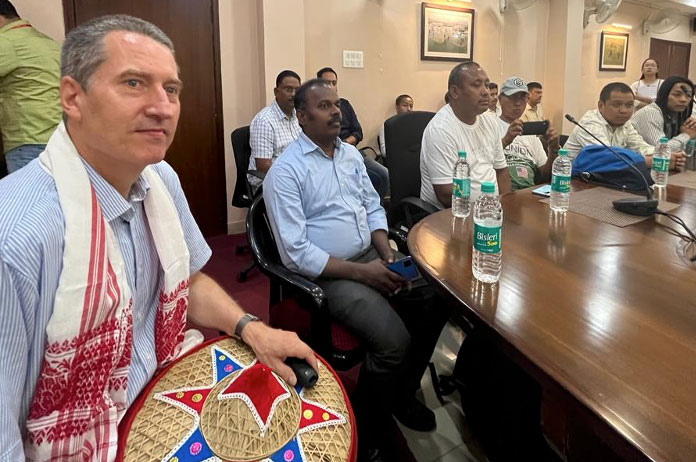
27-28 June 2023 I Gauhati University, Guwahati Assam
14 April 2023 I Hanoi, Viet Nam
OTHER GIZ NEWSLETTERS
GIZ International Forestry Policy Newsletter – Subscribe now to get news and updates on GIZ International Forest Policy. If you would like to receive the GIZ International Forest Policy Newsletter, please send a message to forests@giz.de
Indo-German Biodiversity Programme – Indo-German Biodiversity Programme Newsletters
Renewable Energy and Energy Efficiency Programme II (REEEP II) Newsletter – Subscribe to get news and updates on Renewable Energy and Energy Efficiency Programme II of GIZ Bangladesh. To receive the newsletter, please send an email to Ananya.rubayat@giz.de
PM GatiShakti Newsletter – Coverage of activities supported by Green Freight project in the PM GatiShakti Newsletter. Please refer to Page 3 to read about Urban Mobility India session and CII summit of Post-harvest logistics infrastructure.
Indo-German Biodiversity Programme Newsletter, Issue no. 22, April 2023 – This bi-monthly newsletter is a service by the Indo-German Biodiversity Programme (IGBP). The newsletter features project updates from across India and interesting thematic articles on the challenges of biodiversity conservation and management from the IGBP projects.
Initiative for Sustainable Agricultural Supply Chains (INA) – Read news from the Initiative for Sustainable Agricultural Supply Chains (INA)
GIZ Thailand Newsletter – Read news and updates from GIZ Thailand
Useful Links and Platforms
AdaptationCommunity.net – The Global Programme Human Mobility in the Context of Climate Change (HMCCC) have launched a global website, a subpage on Climate Change and Migration under the AdaptationCommunity.net. Please click the link for an introduction to the topic of climate change-induced human mobility, publications, and other resources. The global programme operates in the Pacific Islands, the Philippines and the Caribbean, and is supported by a team in Bonn.
GIZ Philippines – Get updated on GIZ Philippines and Pacific
GIZ Thailand – Learn about GIZ Thailand activities and other updates
Sector Network TUEWAS – Sector Network Transport, Environment, Energy, and Water in Asia. Click here to subscribe to TUEWAS Newsletter!
SNRD Africa – Stay informed what is happening with our sister network
Warta Keberlanjutan – A communication platform to share SASCI (Sustainable Agricultural Supply Chains in Indonesia) and SASCI+ (Sustainability and Value Added in Agricultural Supply Chains in Indonesia) projects’ updates to the partners and stakeholders. Warta Keberlanjutan covers updated both projects’ activities and progress on a quarterly basis, and six editions have been produced since May 2021. The newsletter is available and shared in printed and pdf versions to strategic project partners and relevant stakeholders.
Published by:
SNRD Asia and the Pacific Secretariat
Deutsche Gesellschaft für
Internationale Zusammenarbeit (GIZ) GmbH
Registered offices
Bonn and Eschborn, Germany
193/63 Lake Rajada Office Complex 16th Fl.
New Rachadapisek-Rama 4 Road,
Klong Toey, Bangkok, 10110 Thailand
E snrd-asia@giz.de
I www.snrd-asia.org
Bangkok 2022
Unsubscribe:
Send us an email to snrd-asia@giz.de to unsubscribe.
Editor:
SNRD Asia and the Pacific Secretariat, Bangkok
Design:
Sector Network Coordination Unit, Eschborn
SNRD Asia and the Pacific Secretariat, Bangkok
Photo credits/sources:
As shown under each pictures
URL links:
Responsibility for the content of external websites linked in this publication
always lies with their respective publishers.
GIZ expressly dissociates itself from such content.
GIZ is responsible for the content of this publication.
